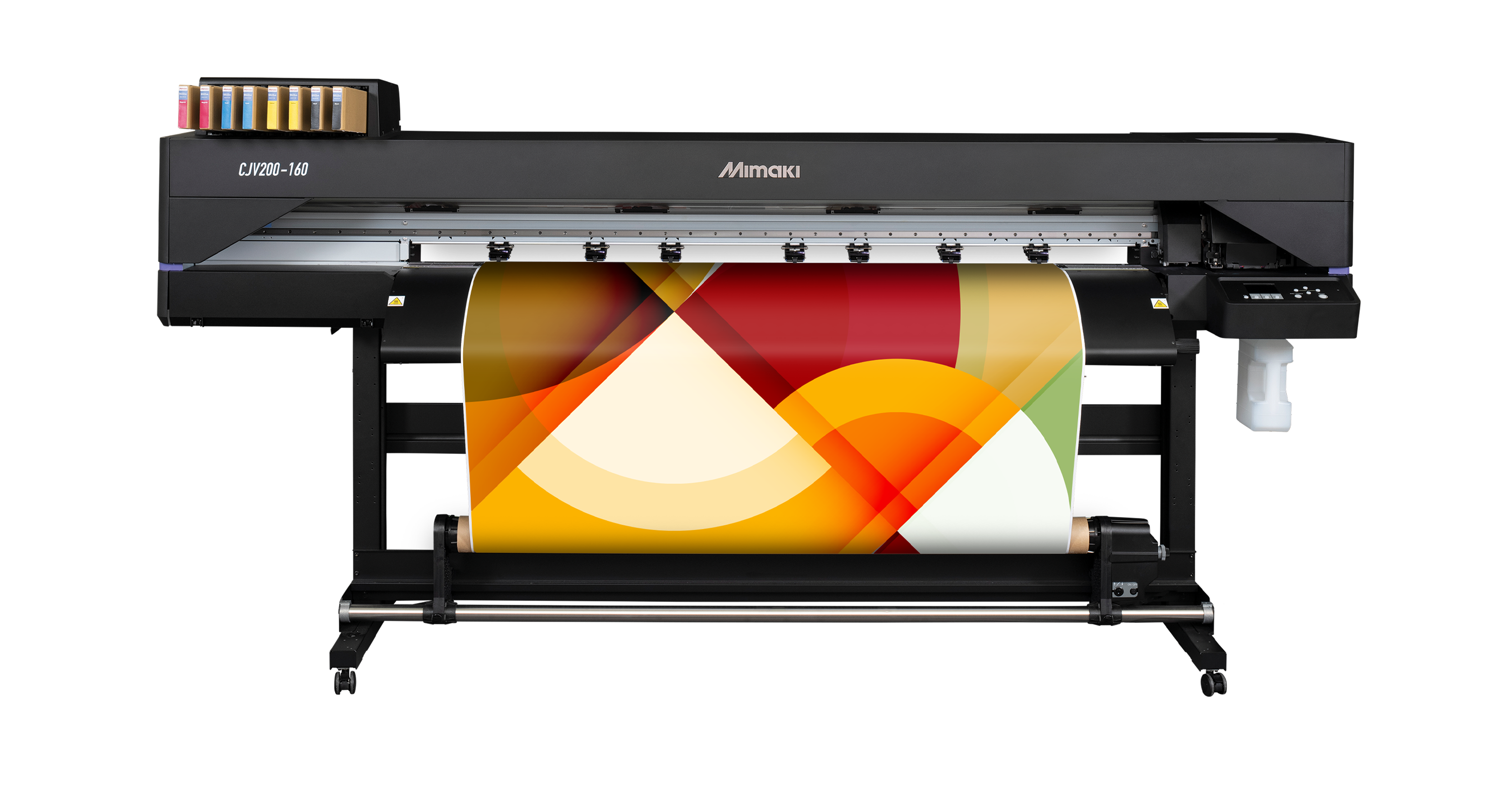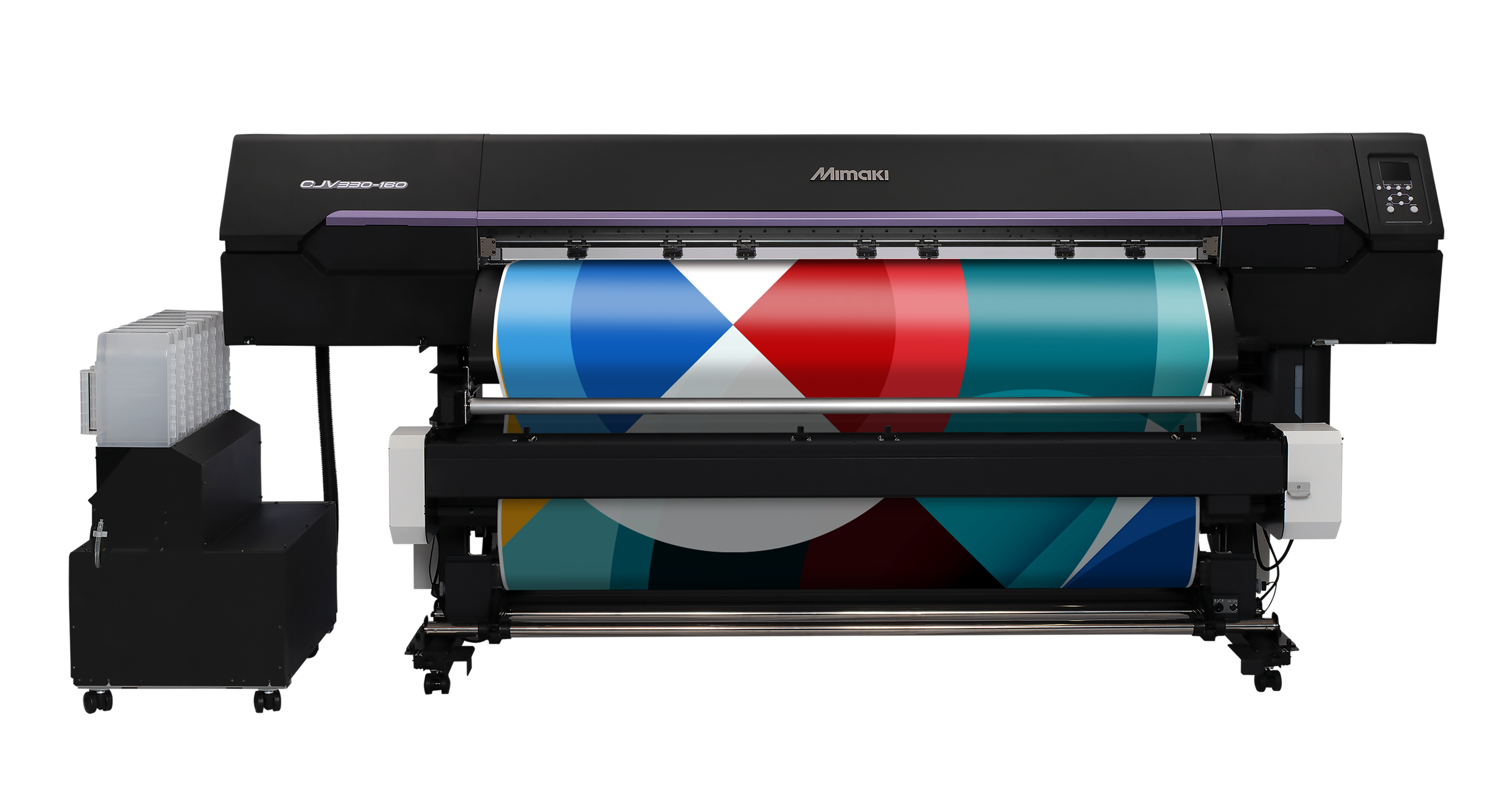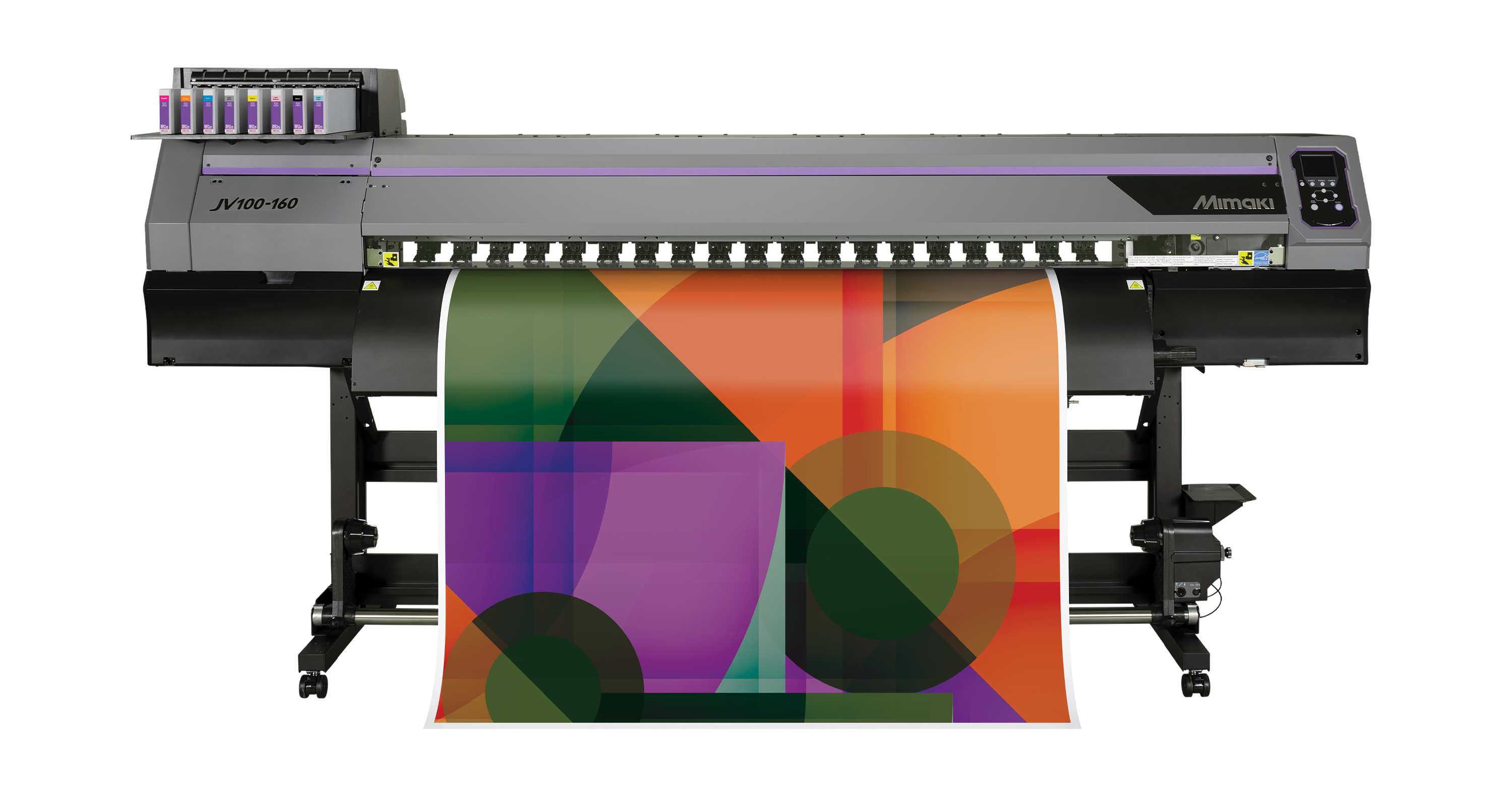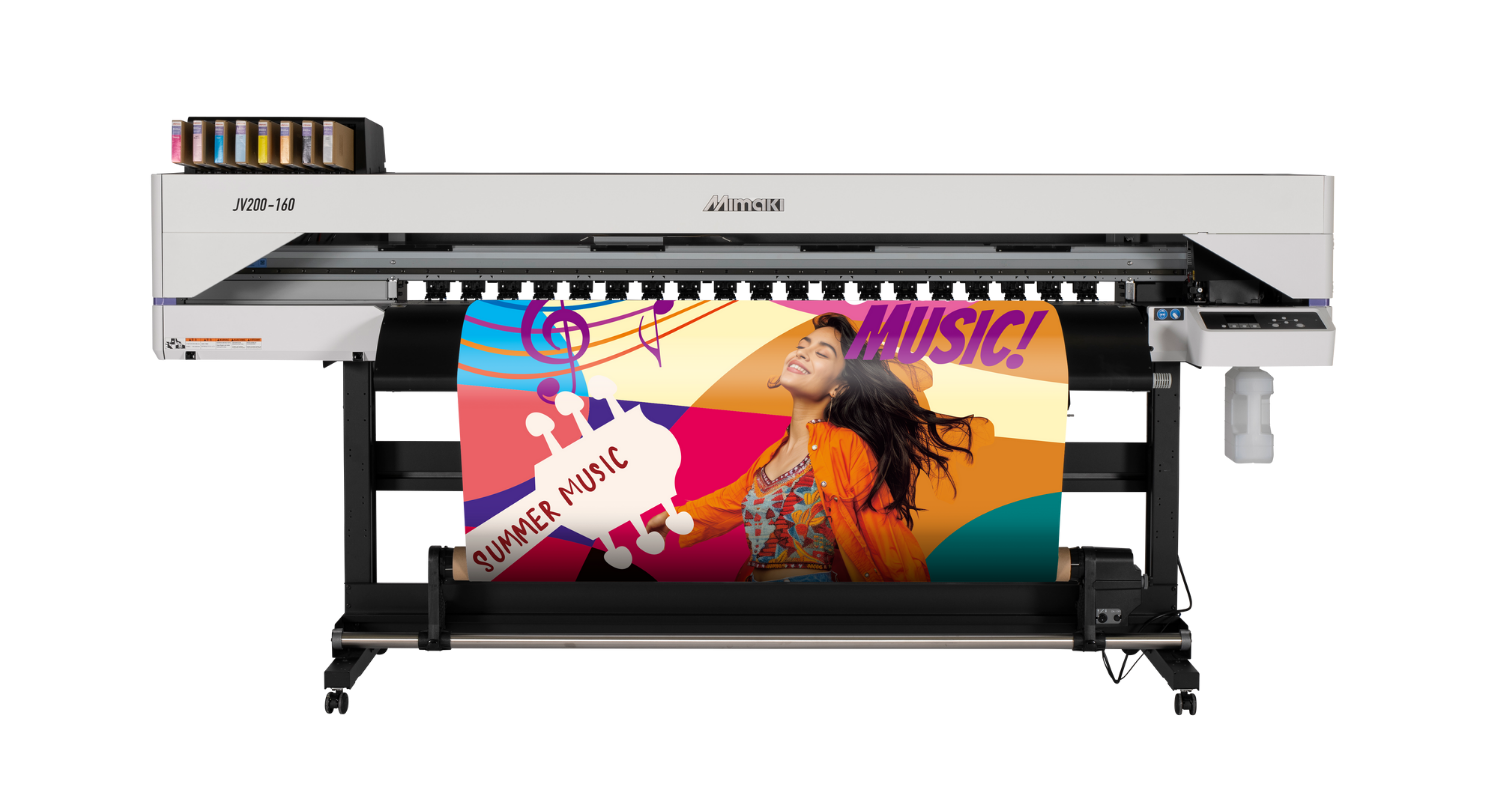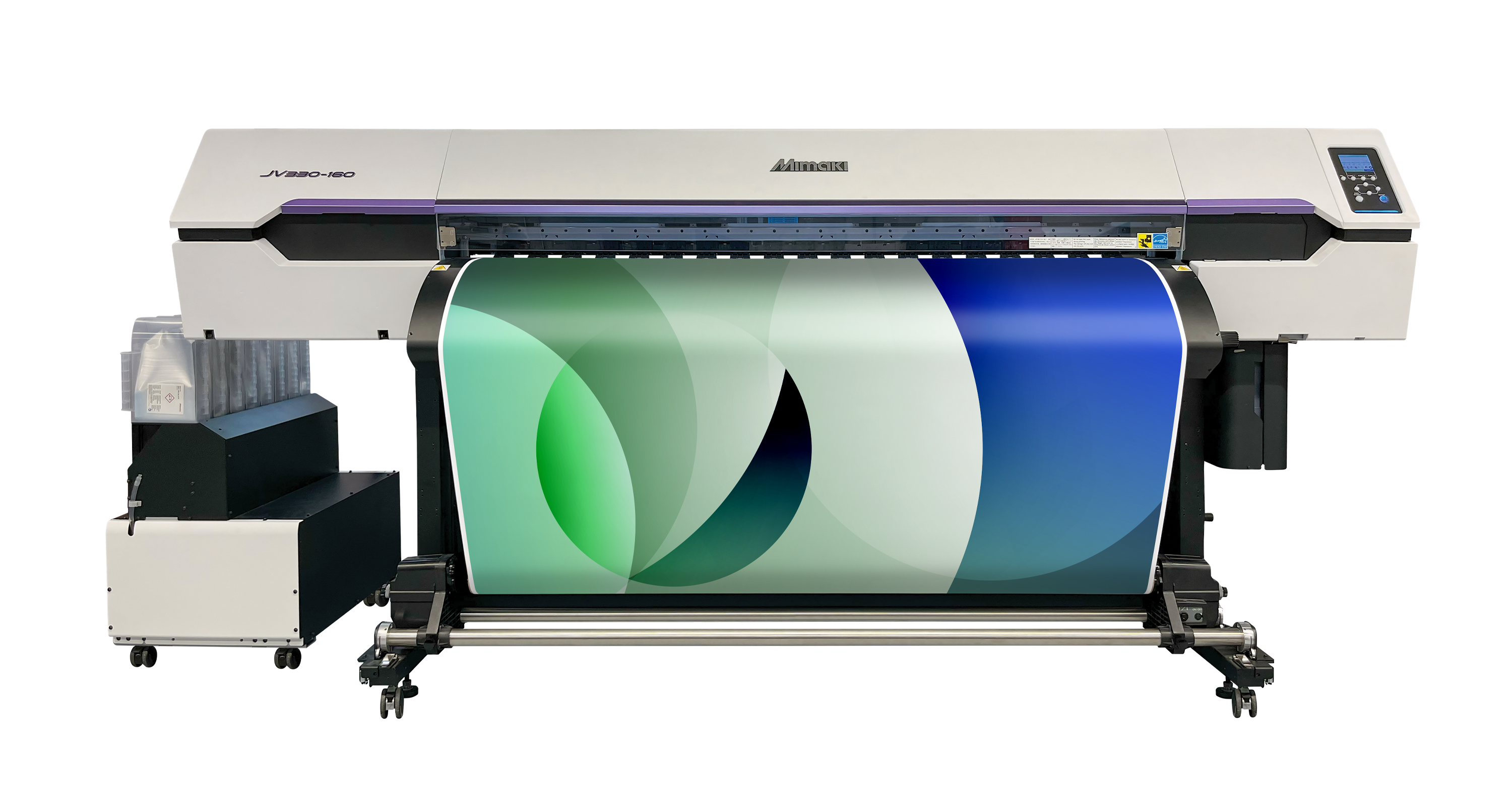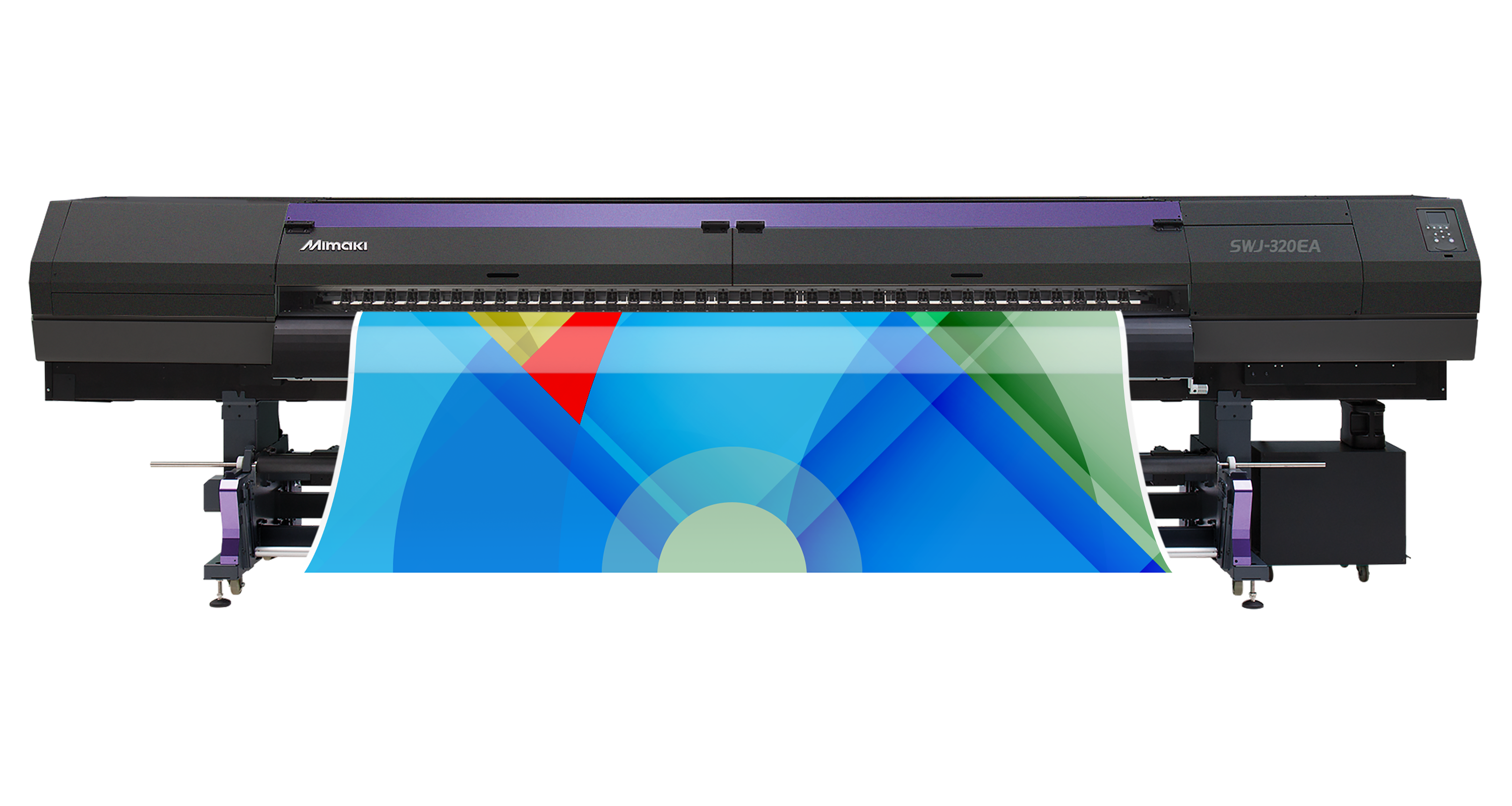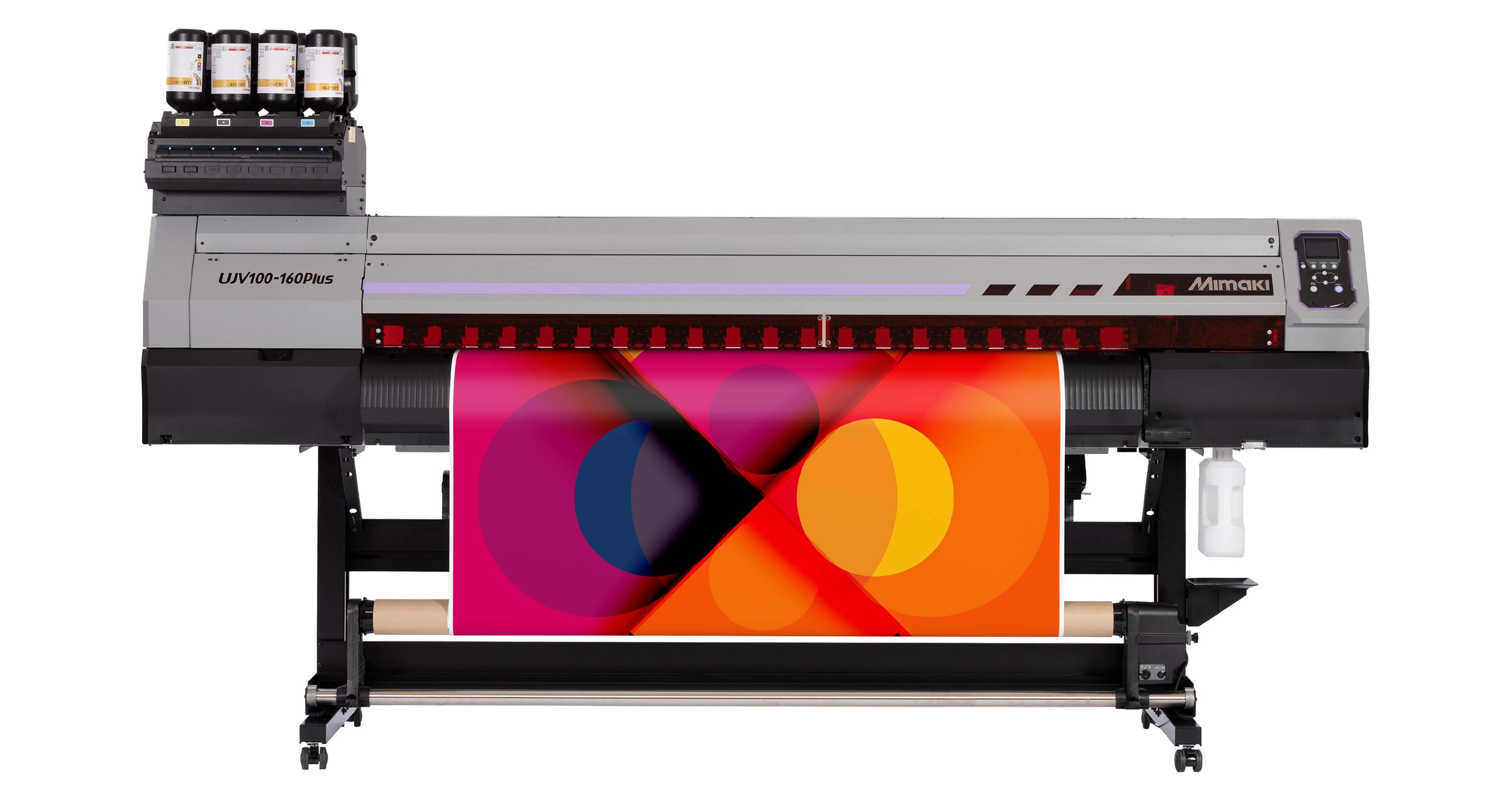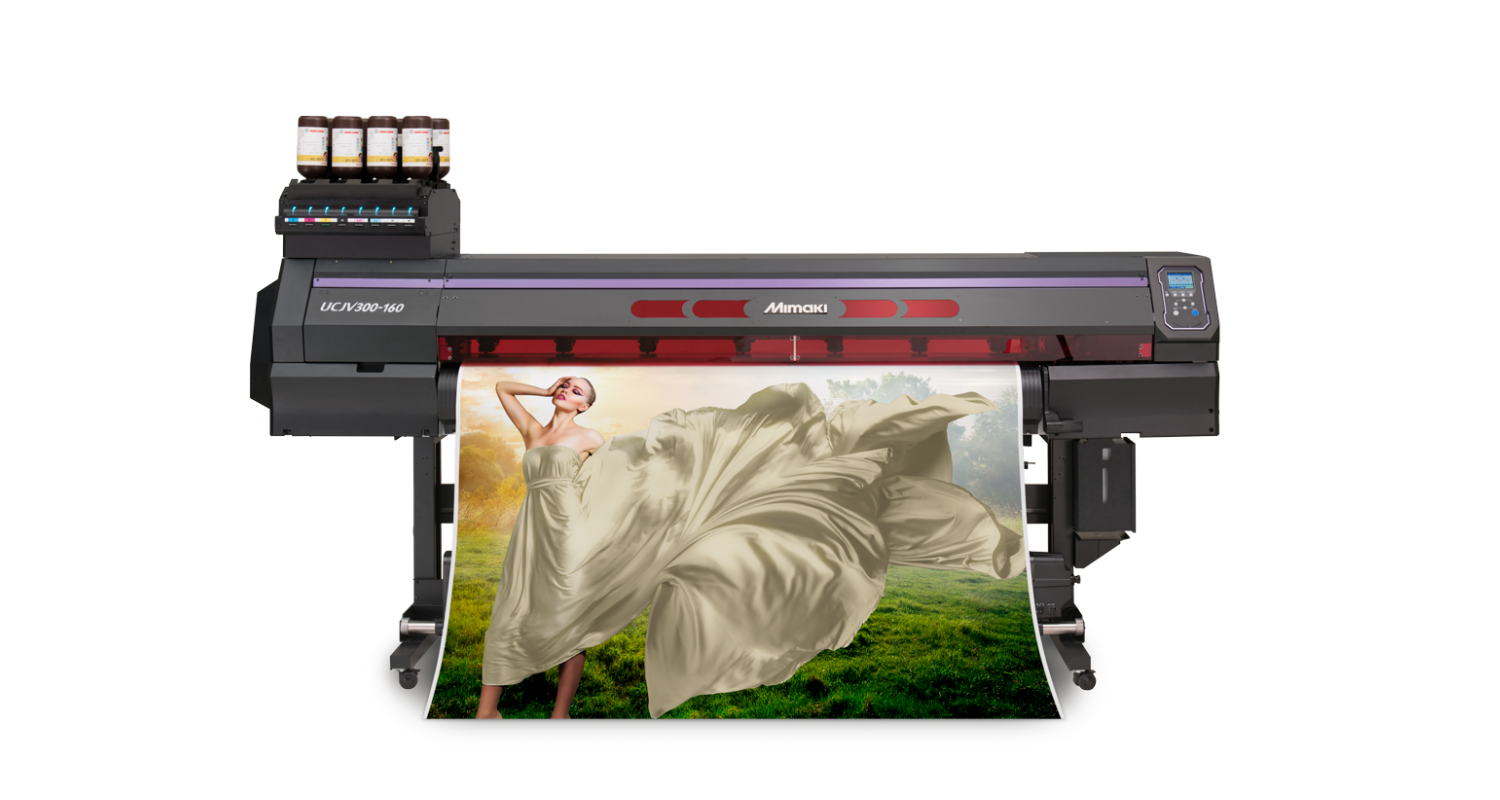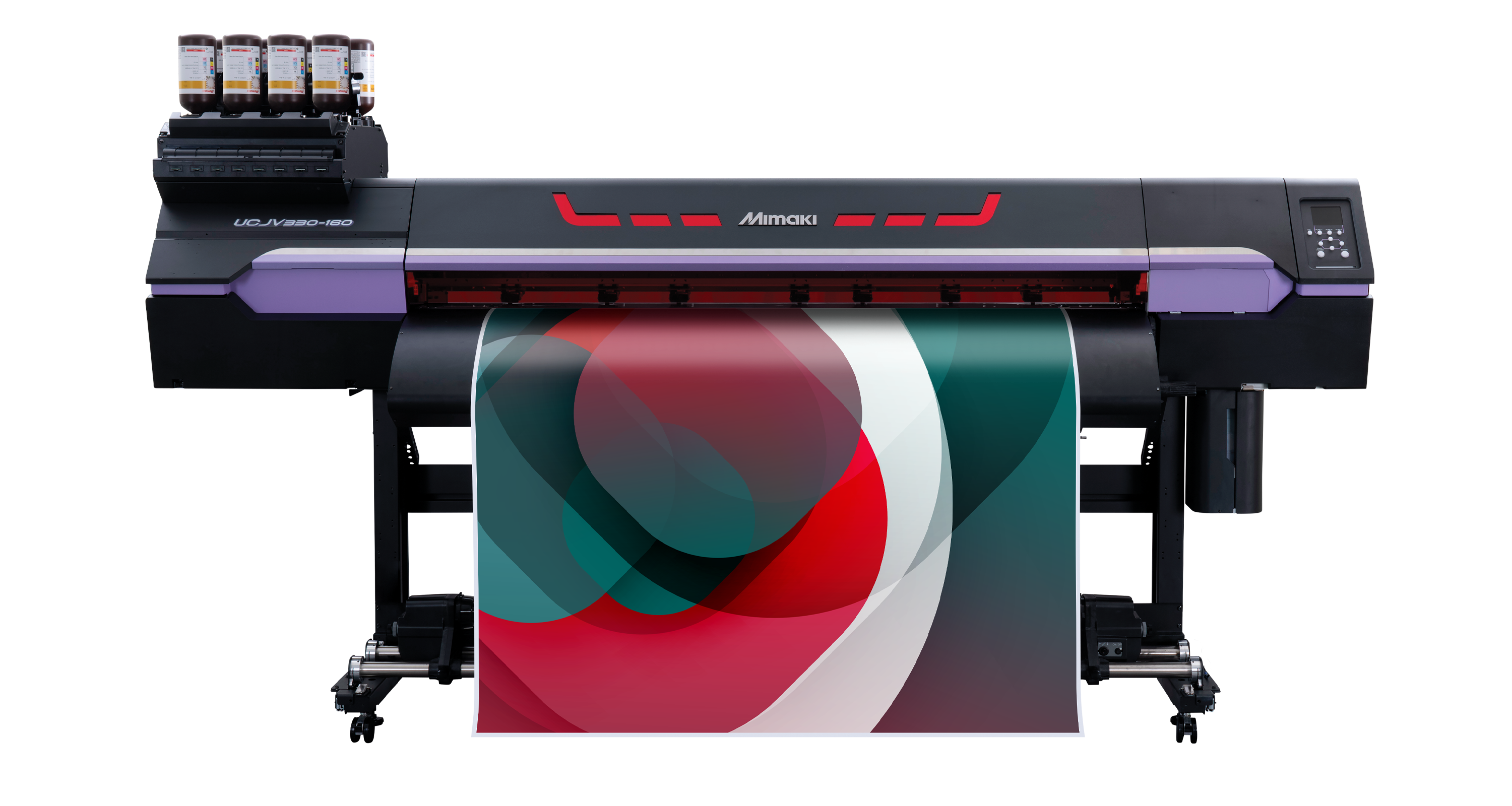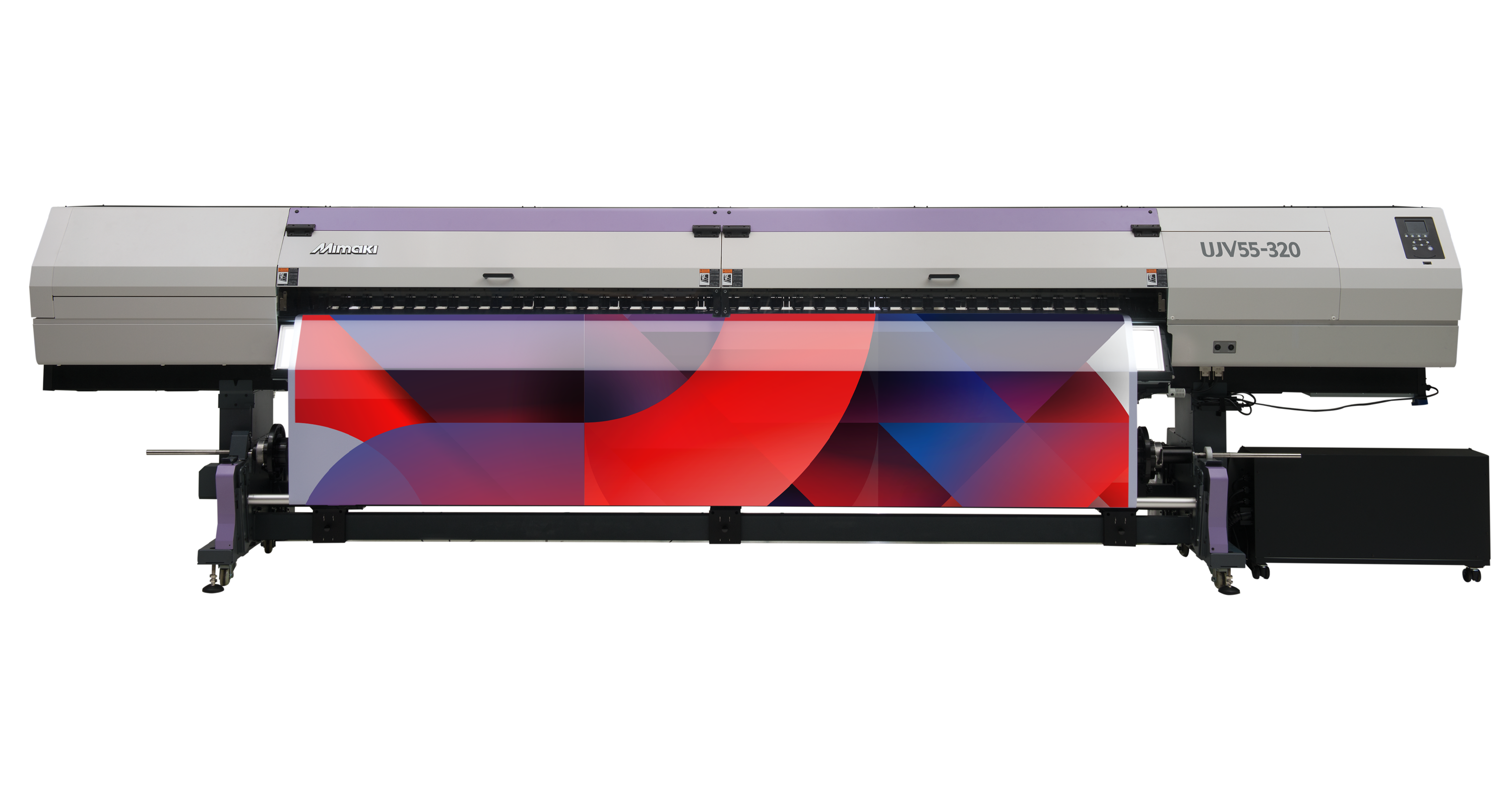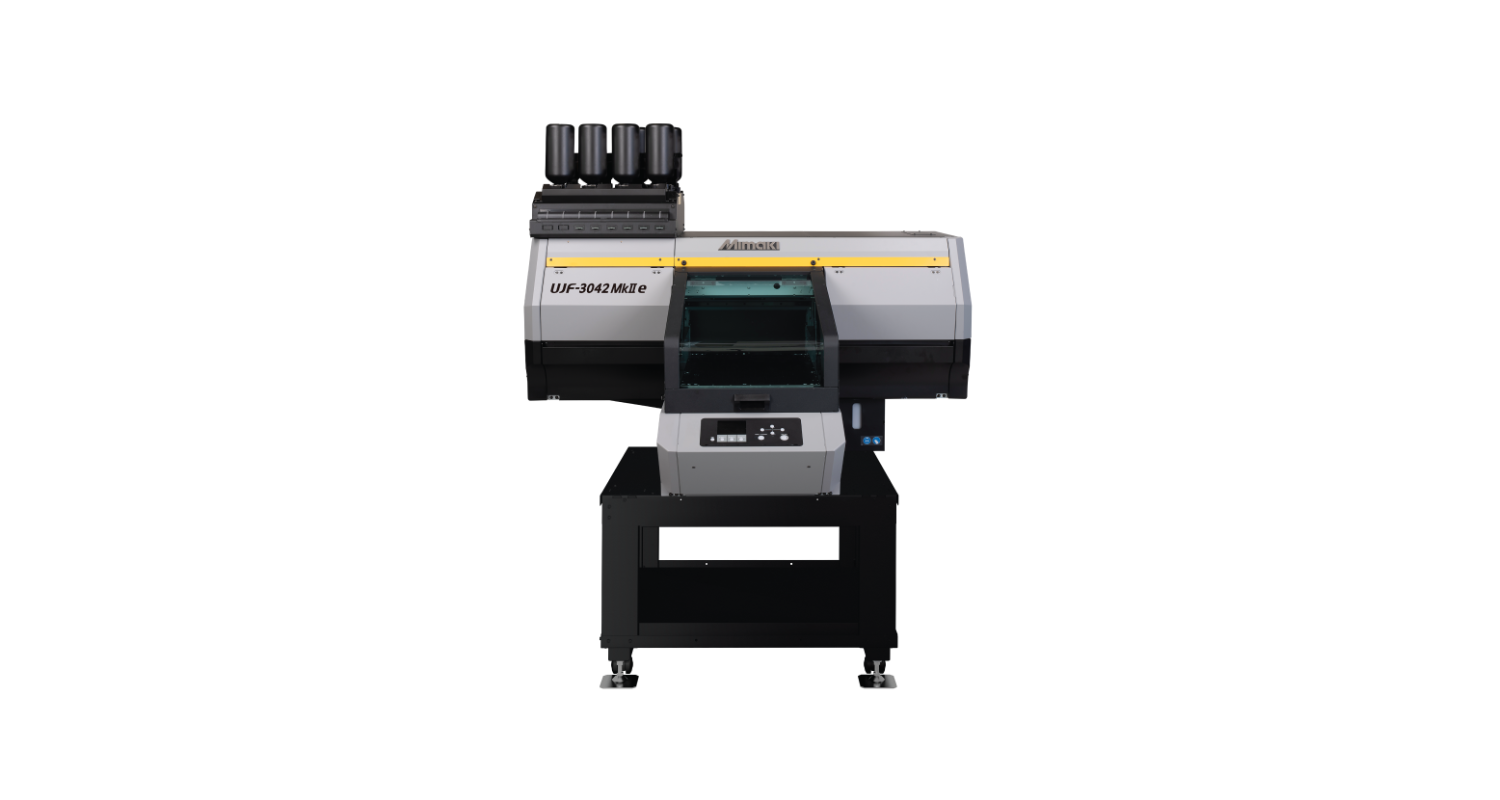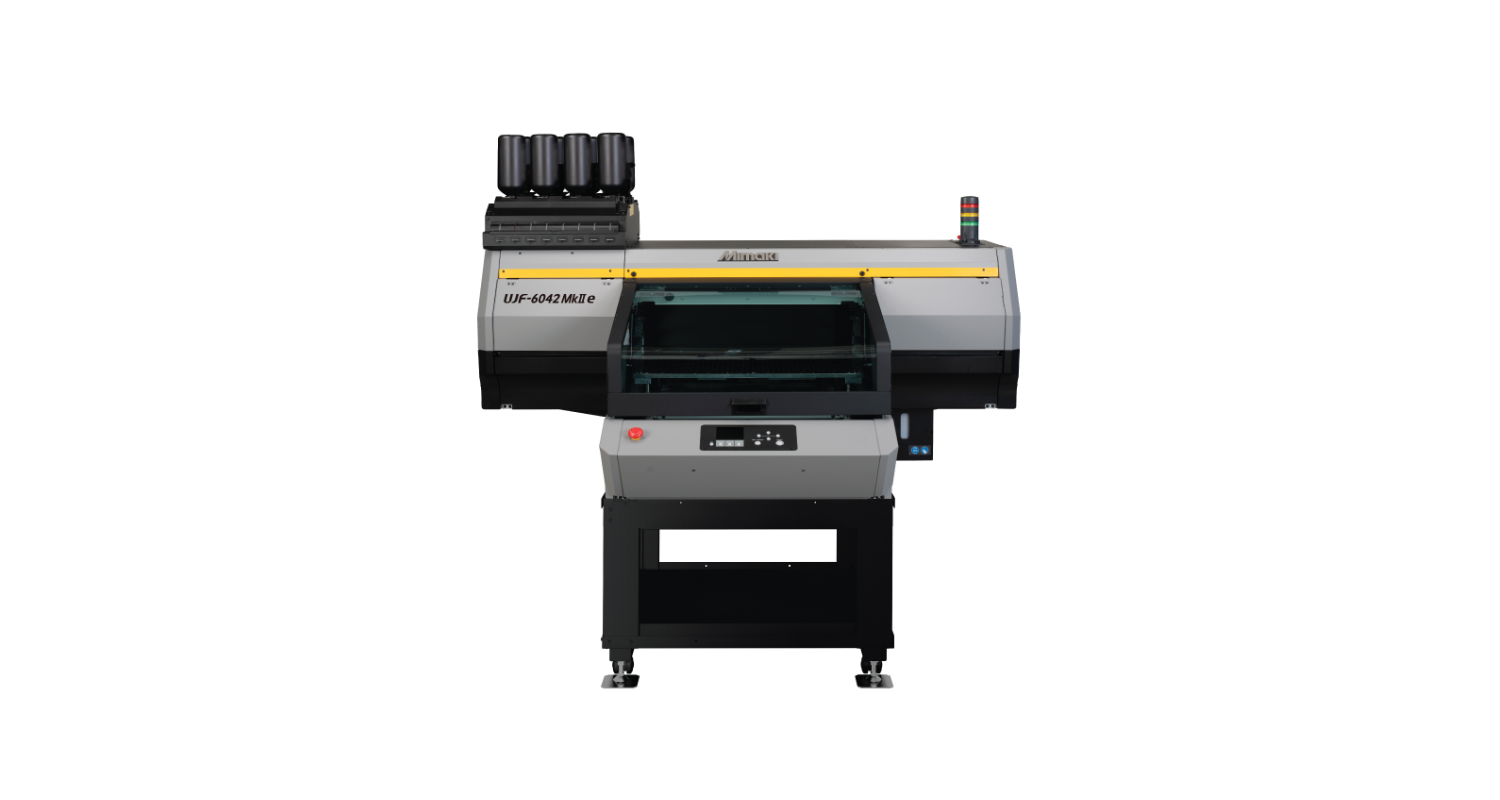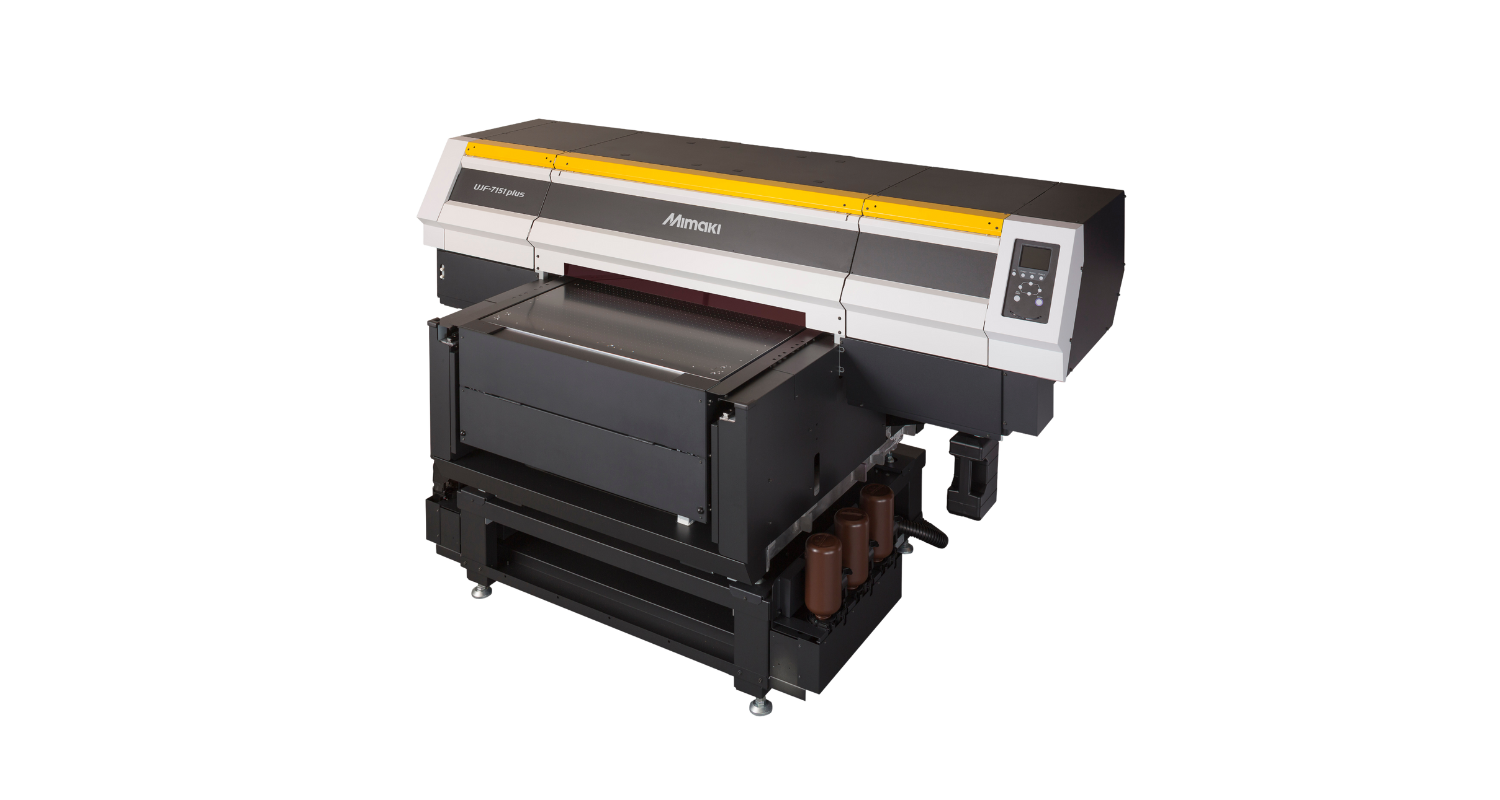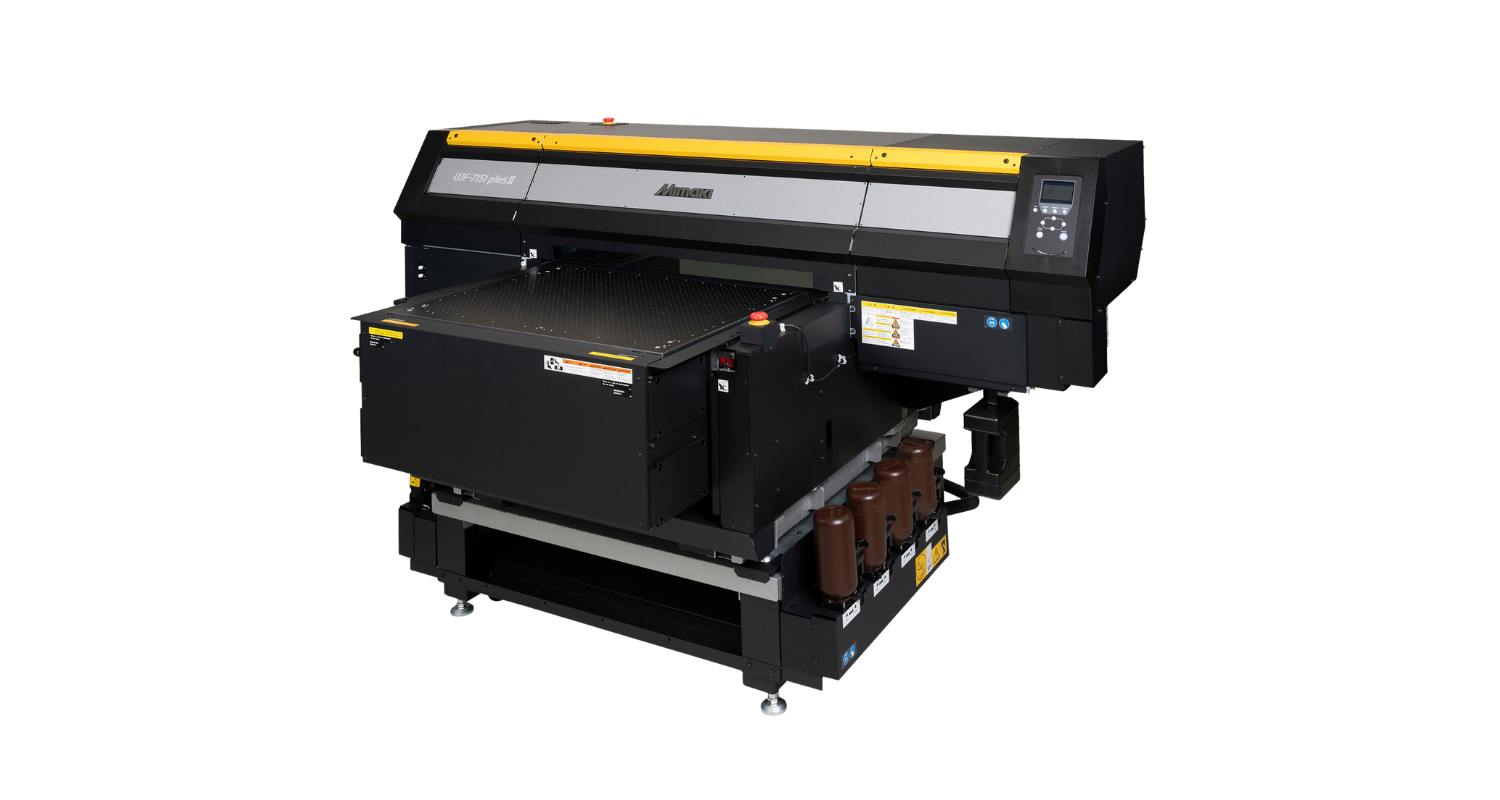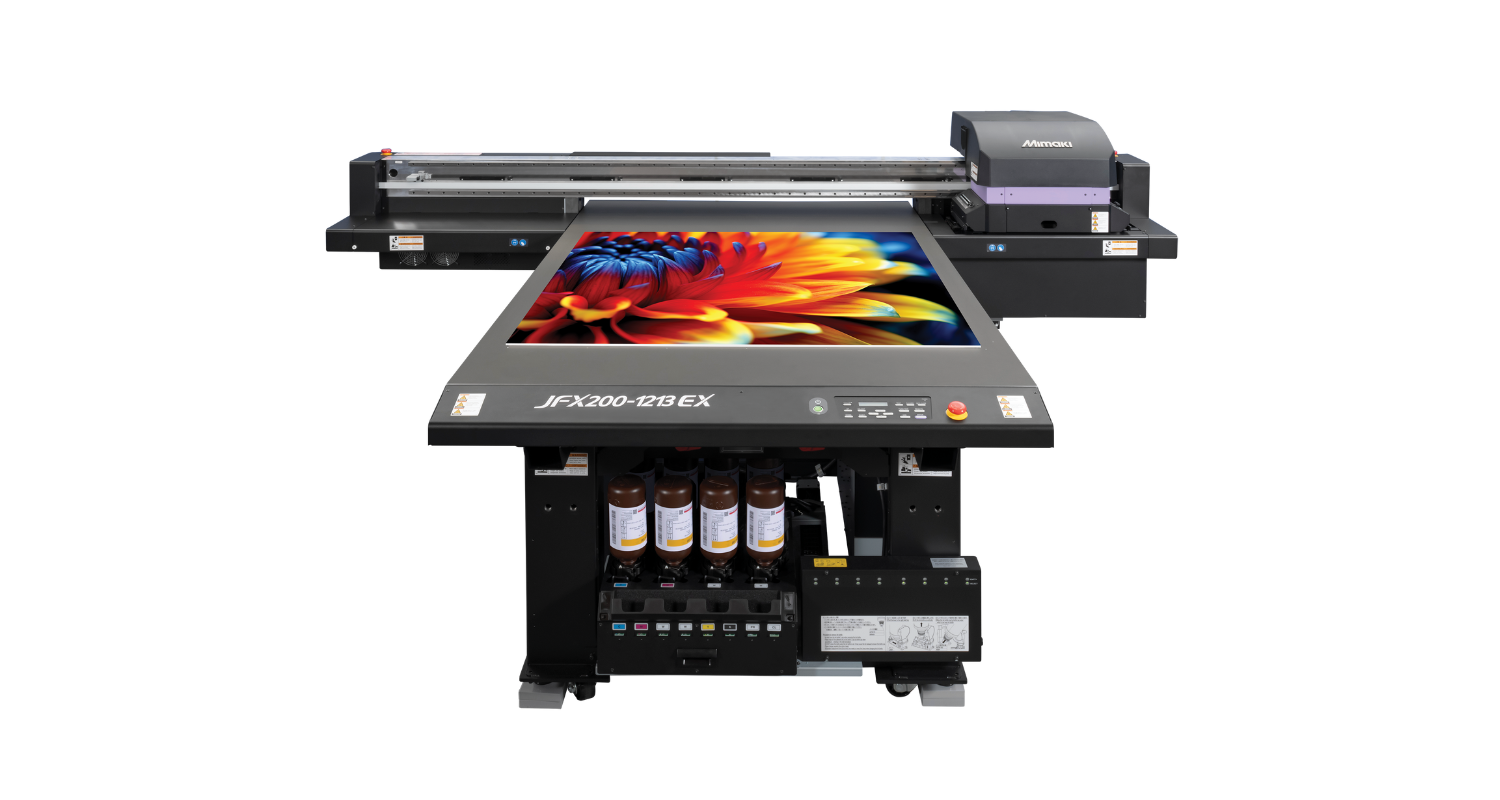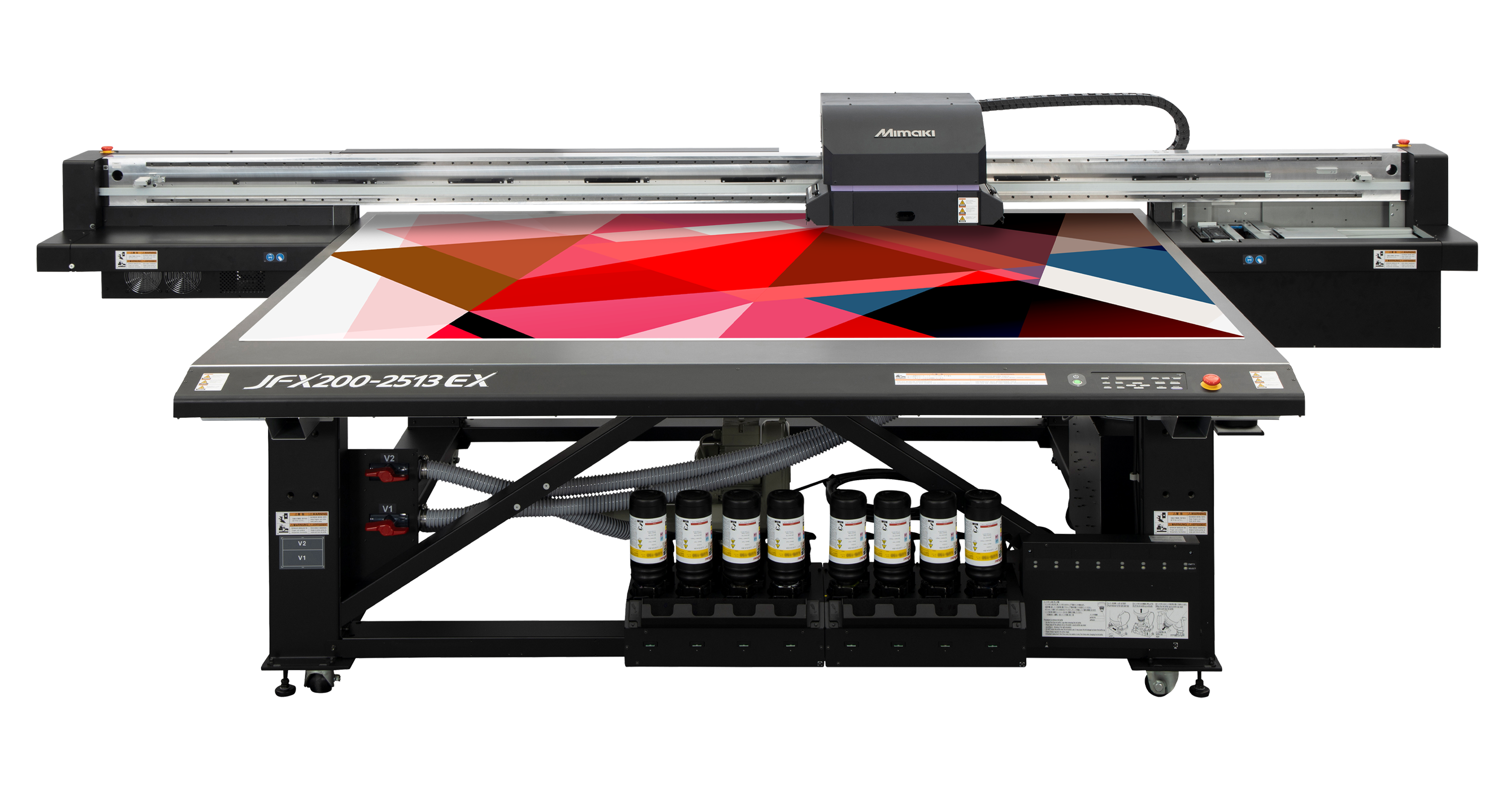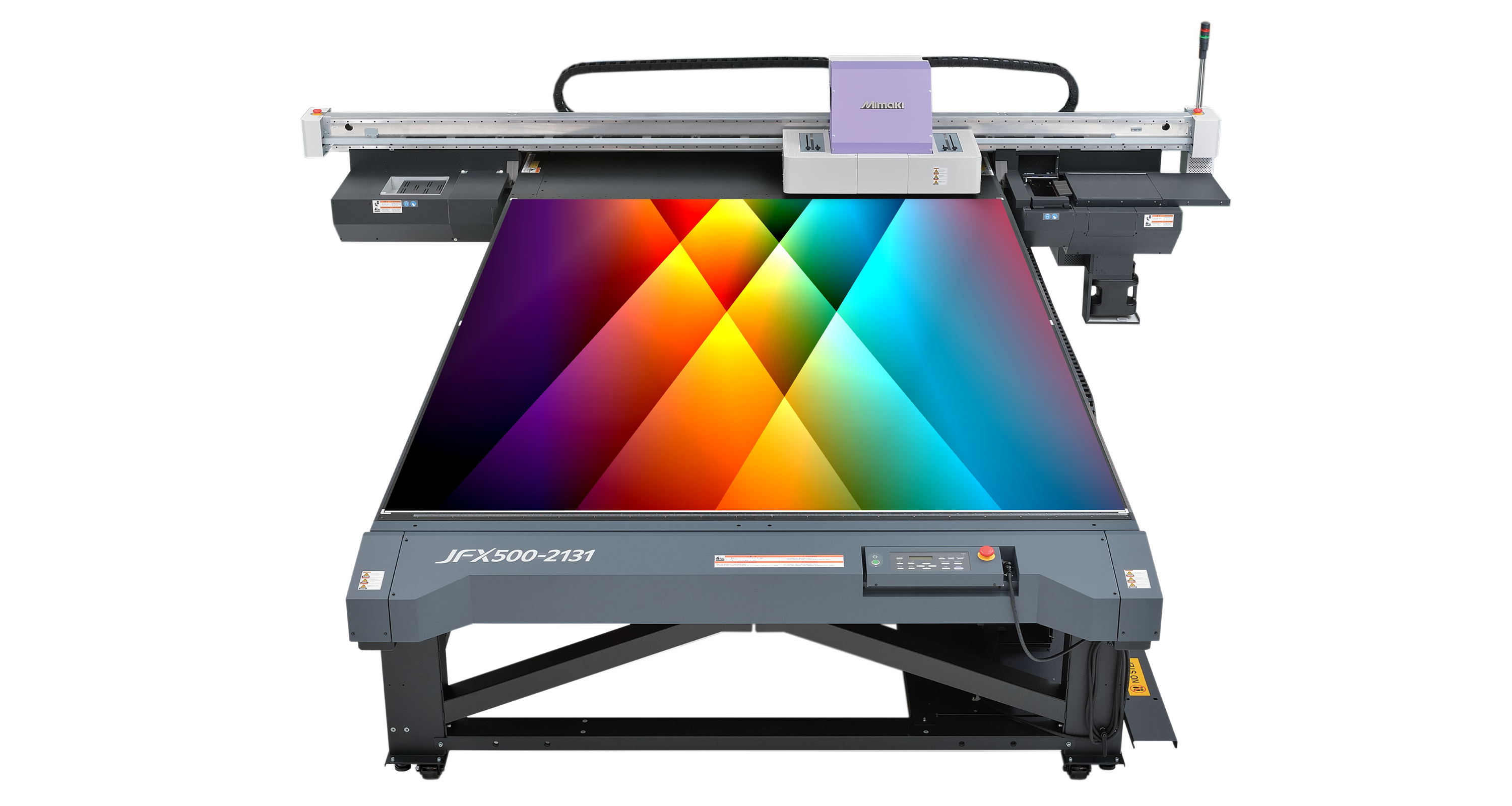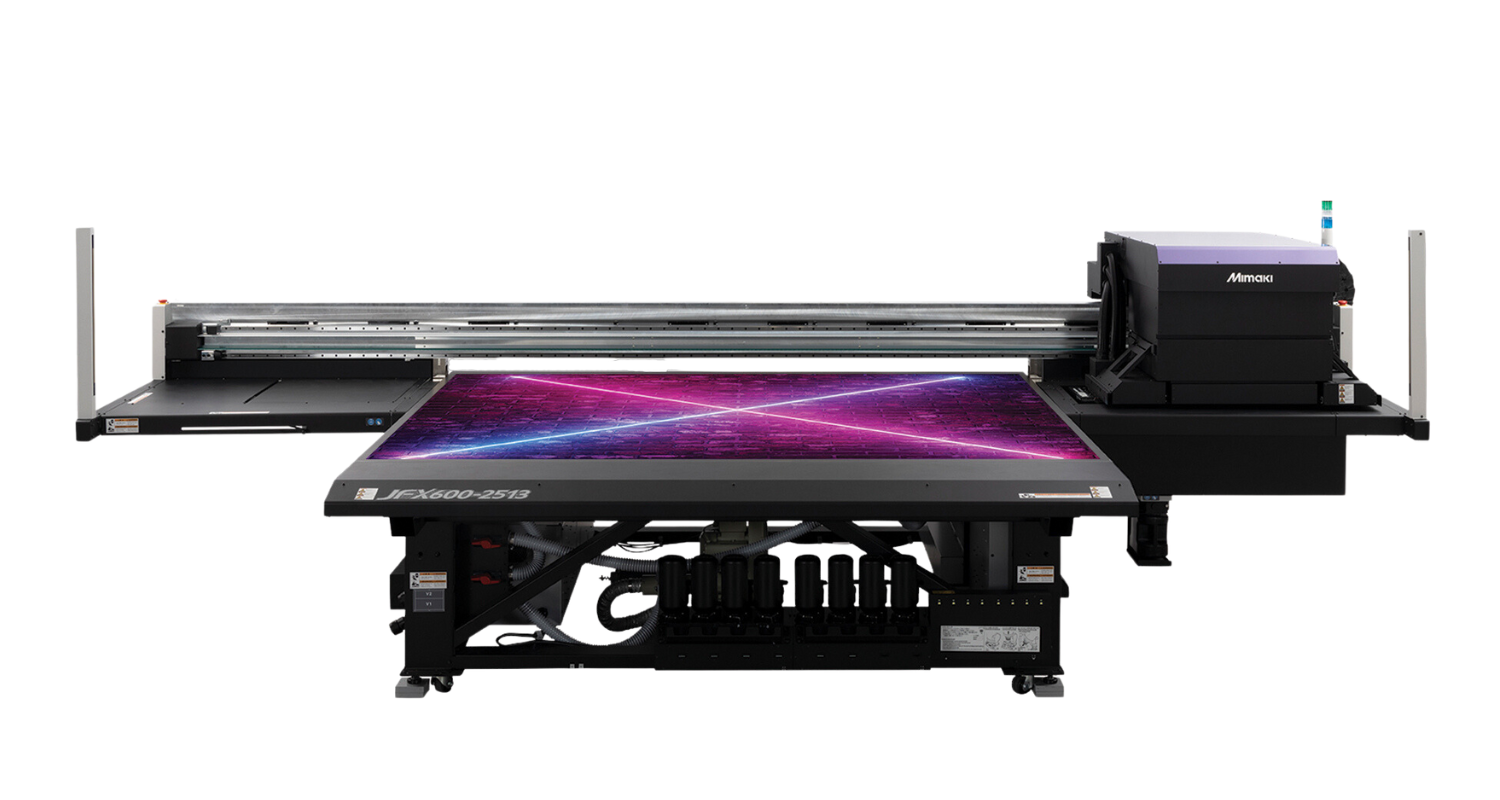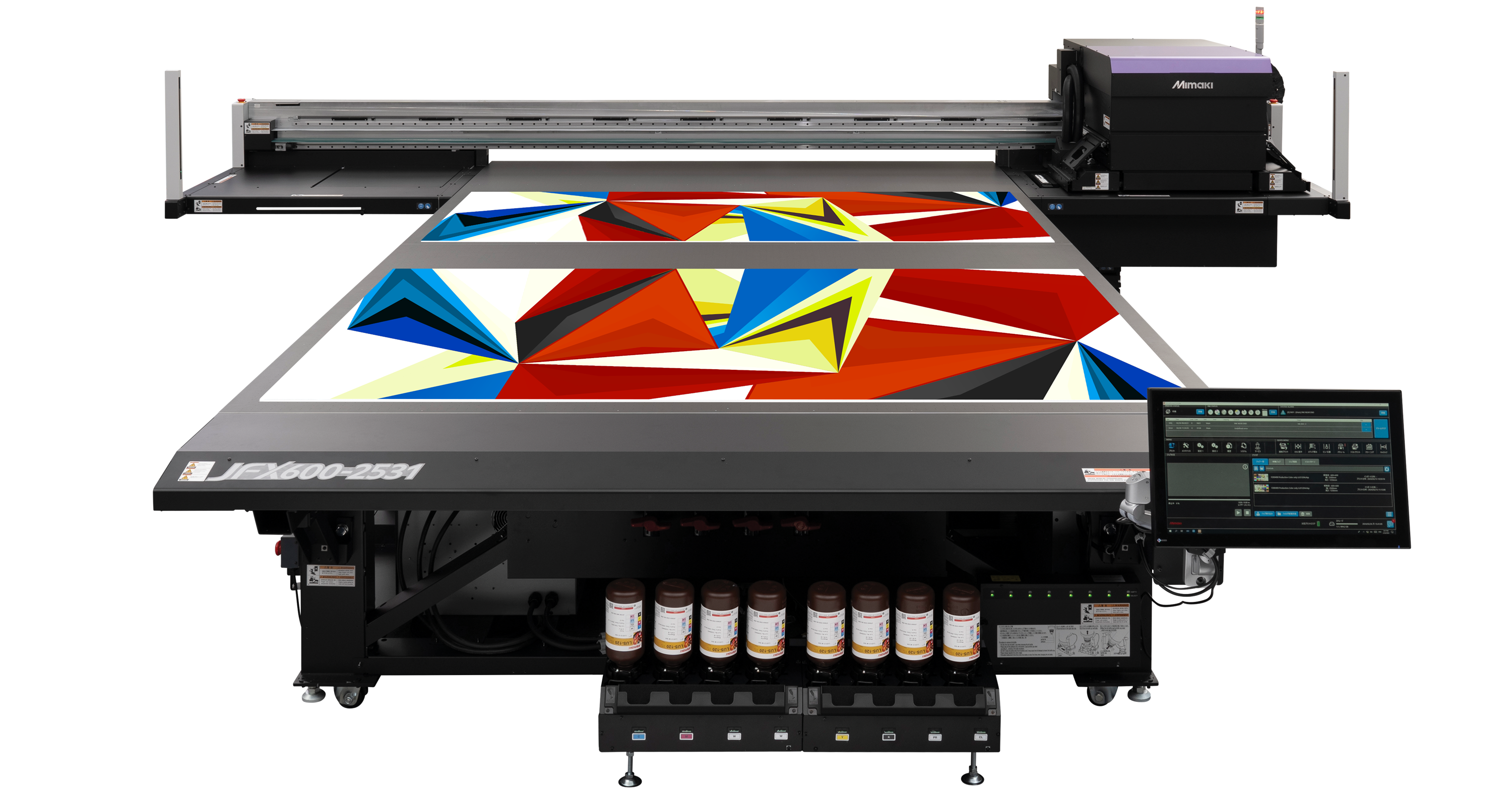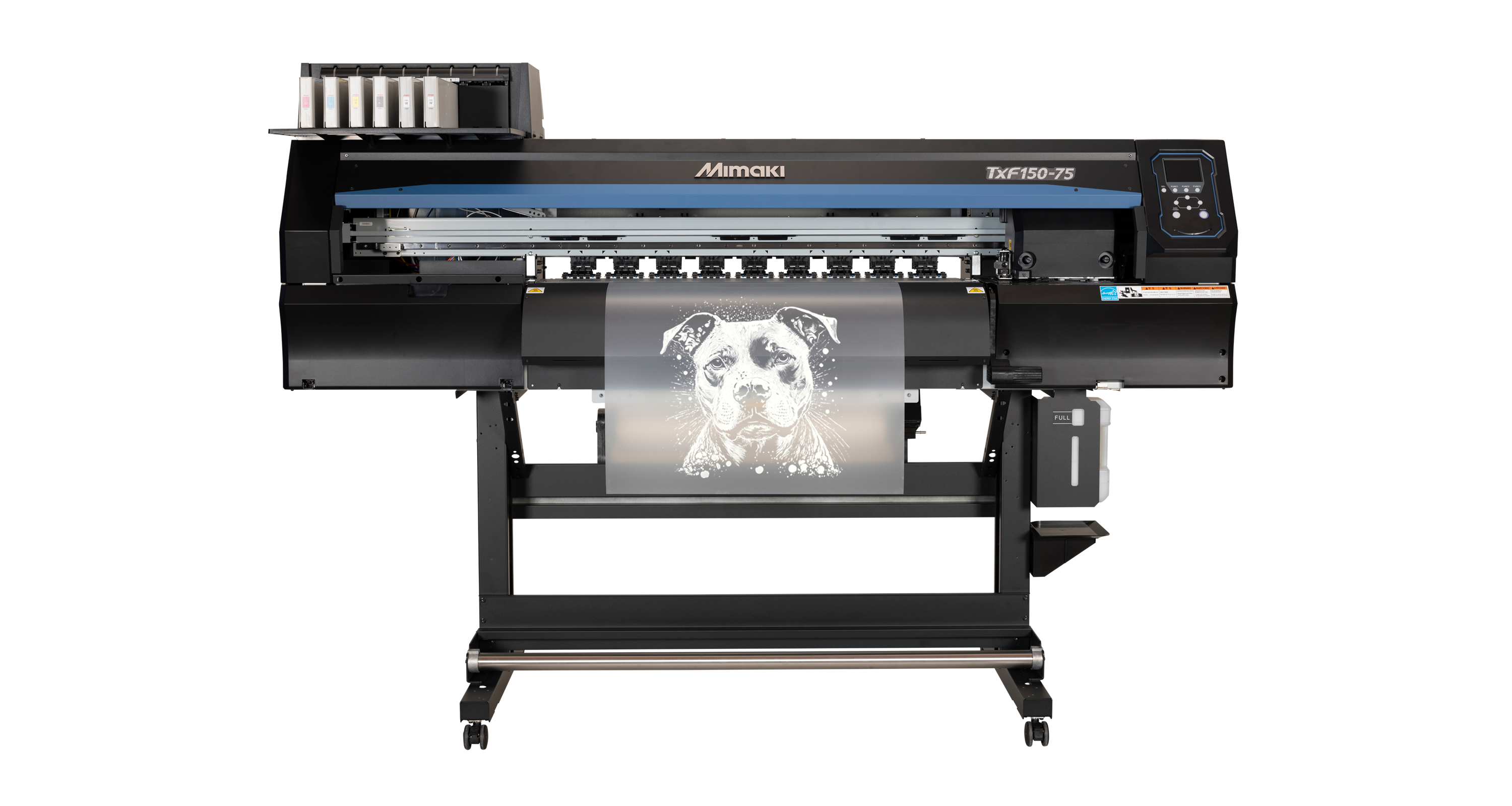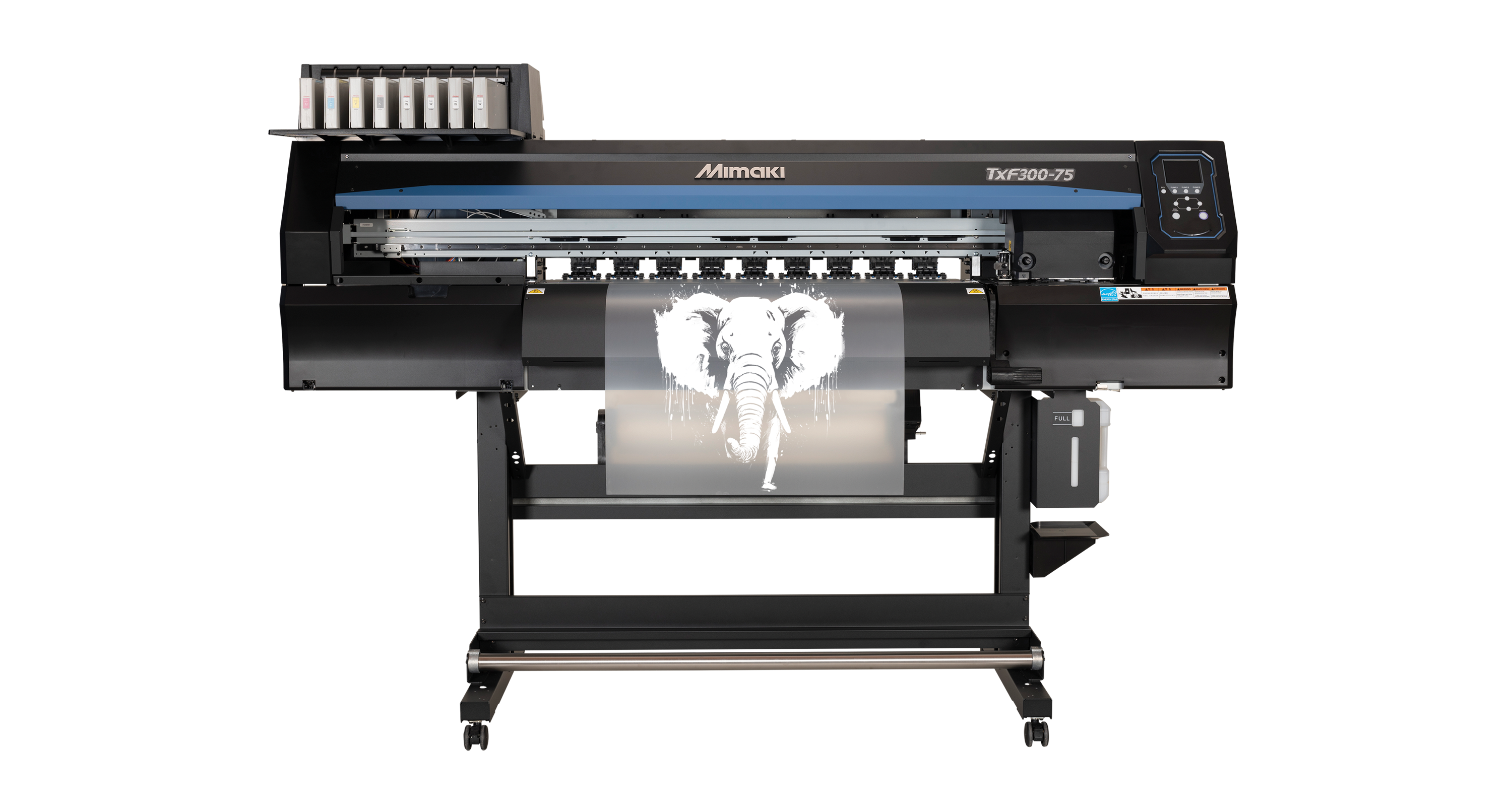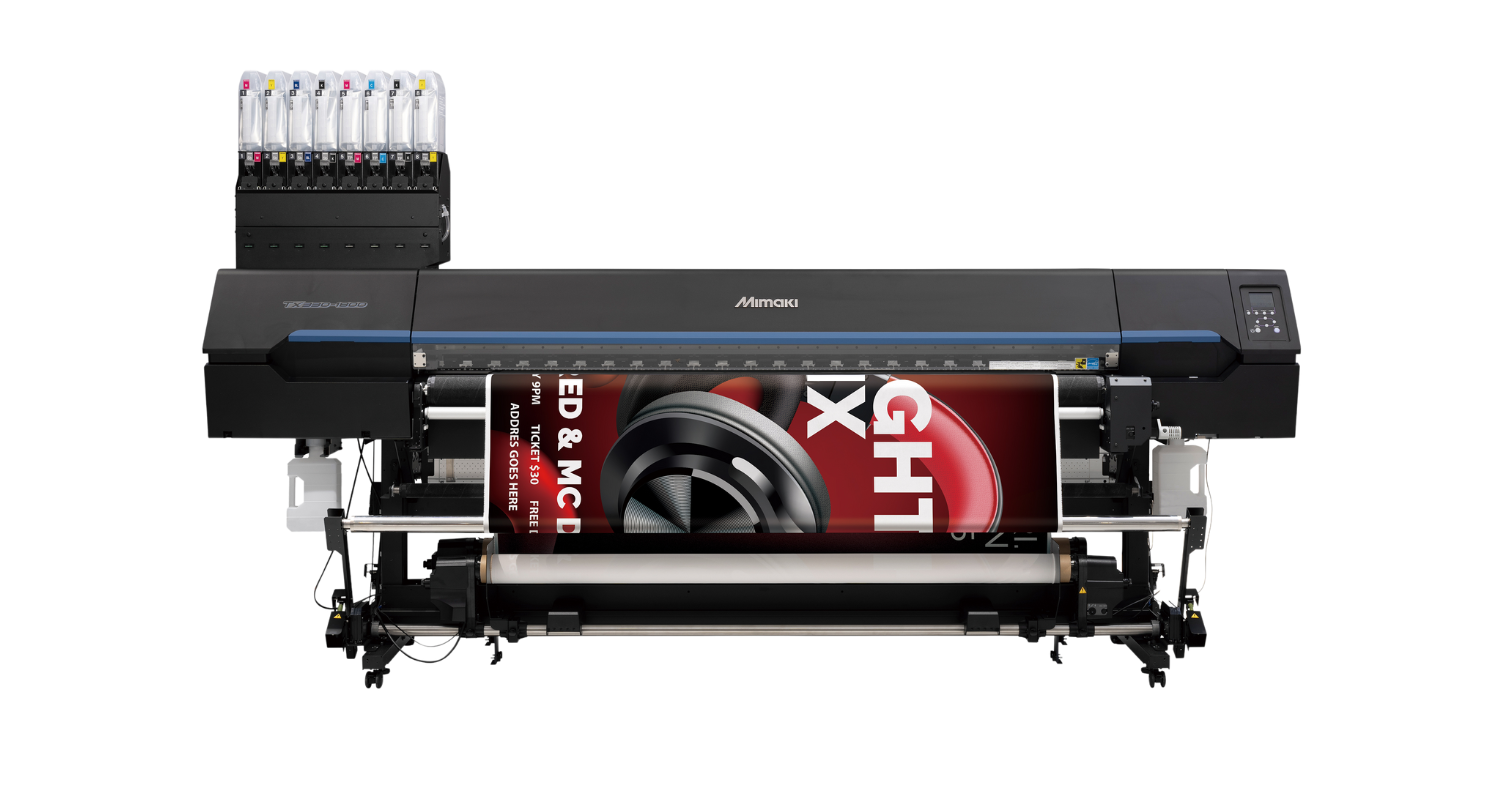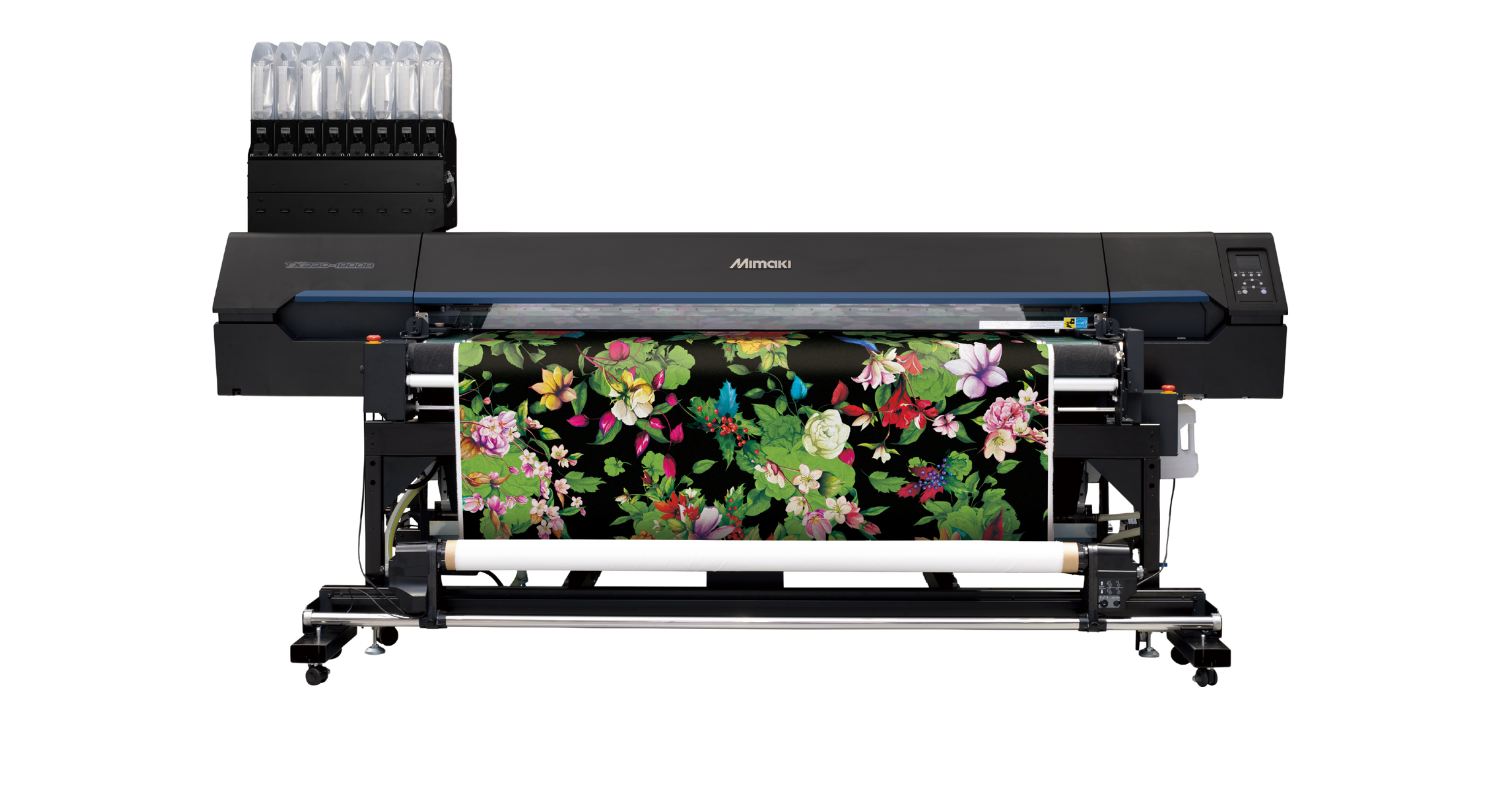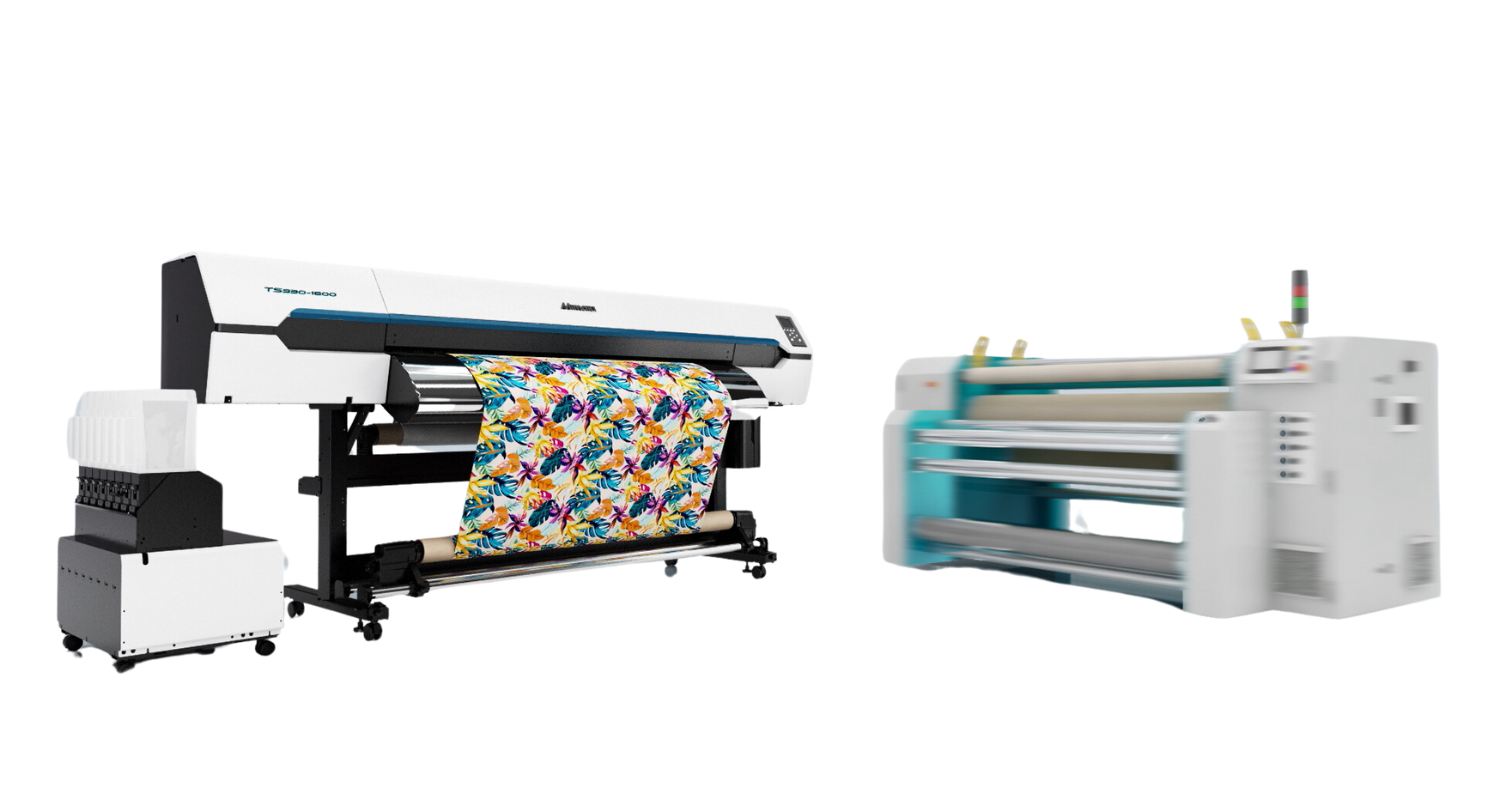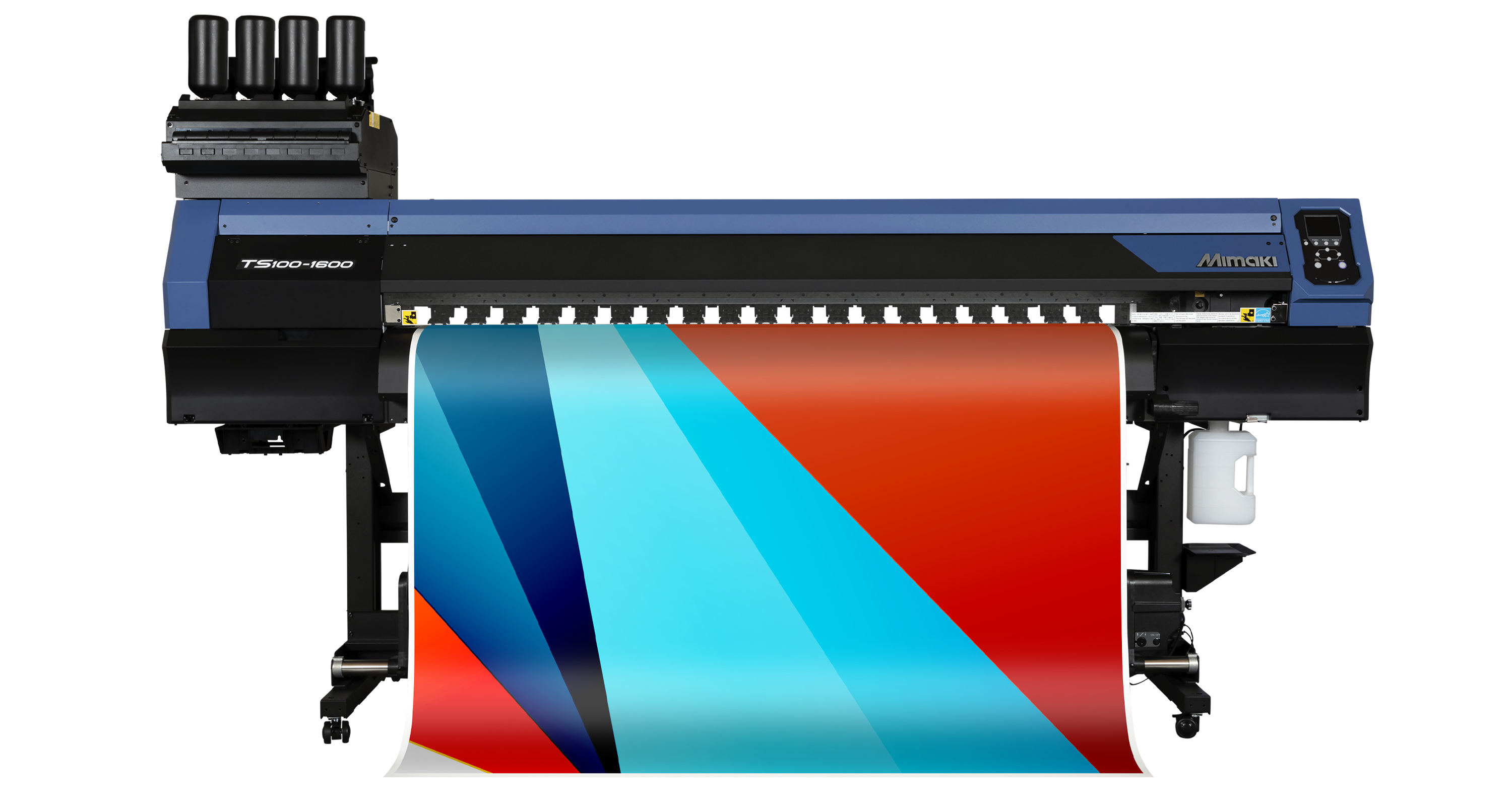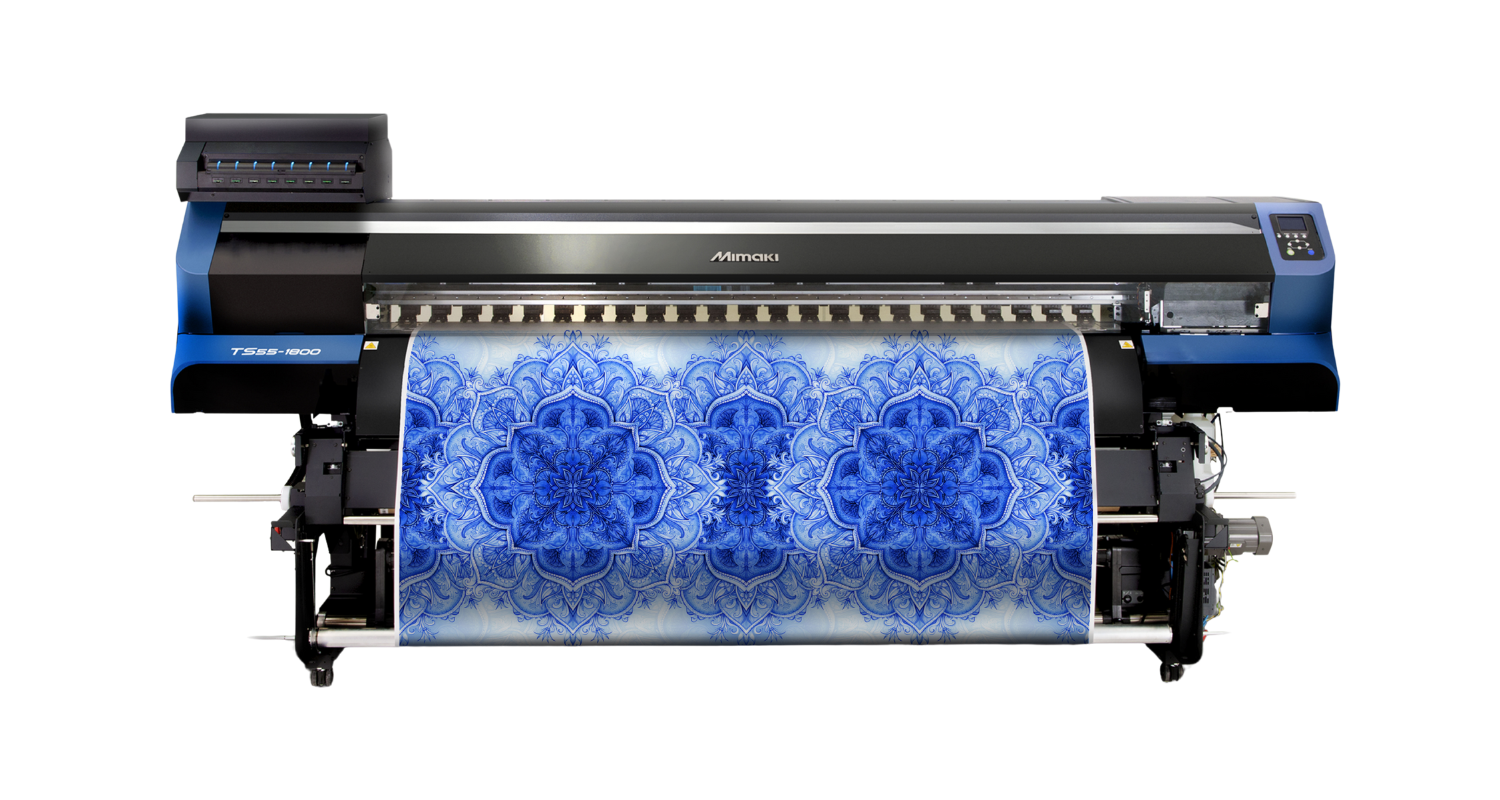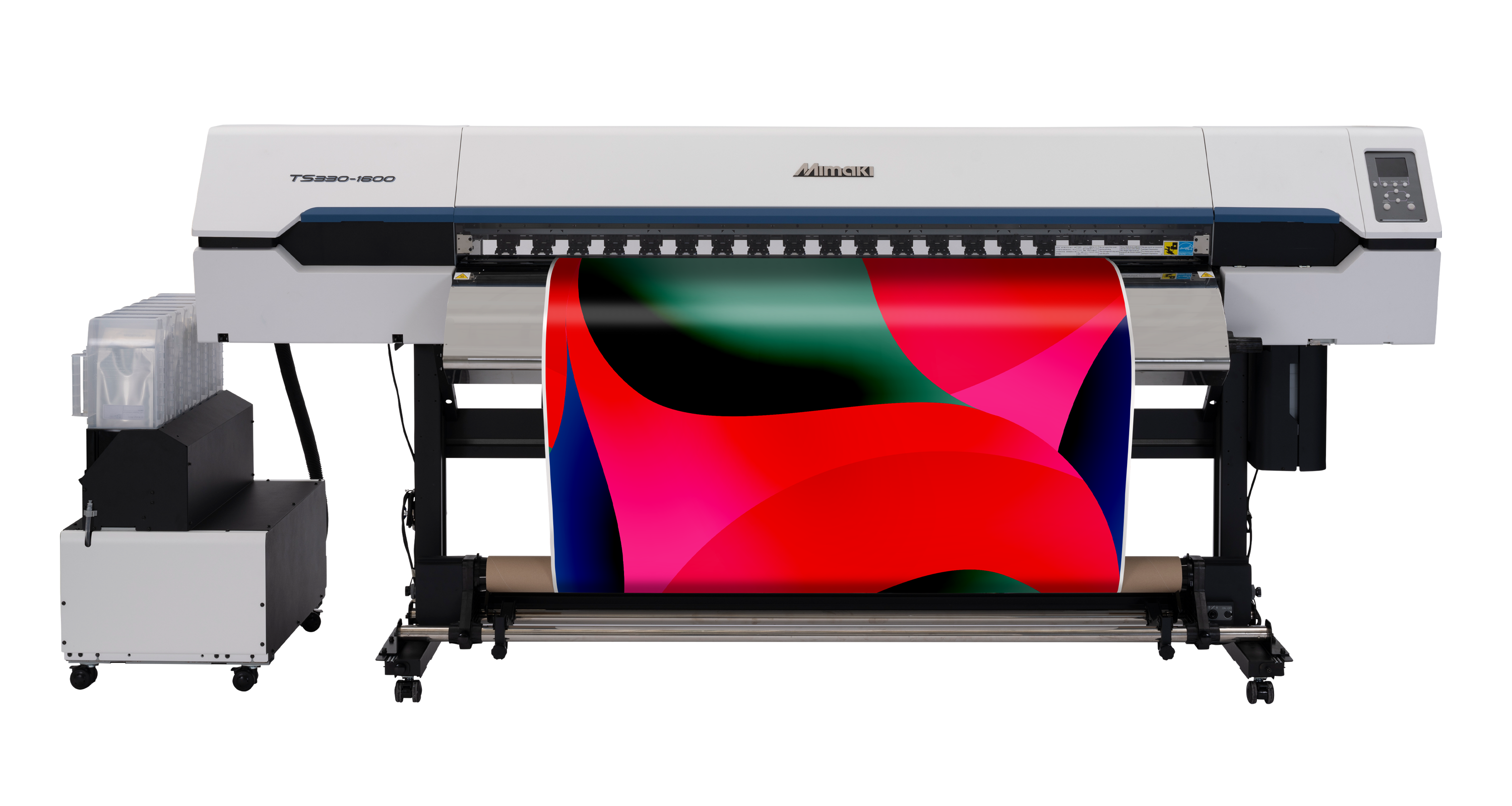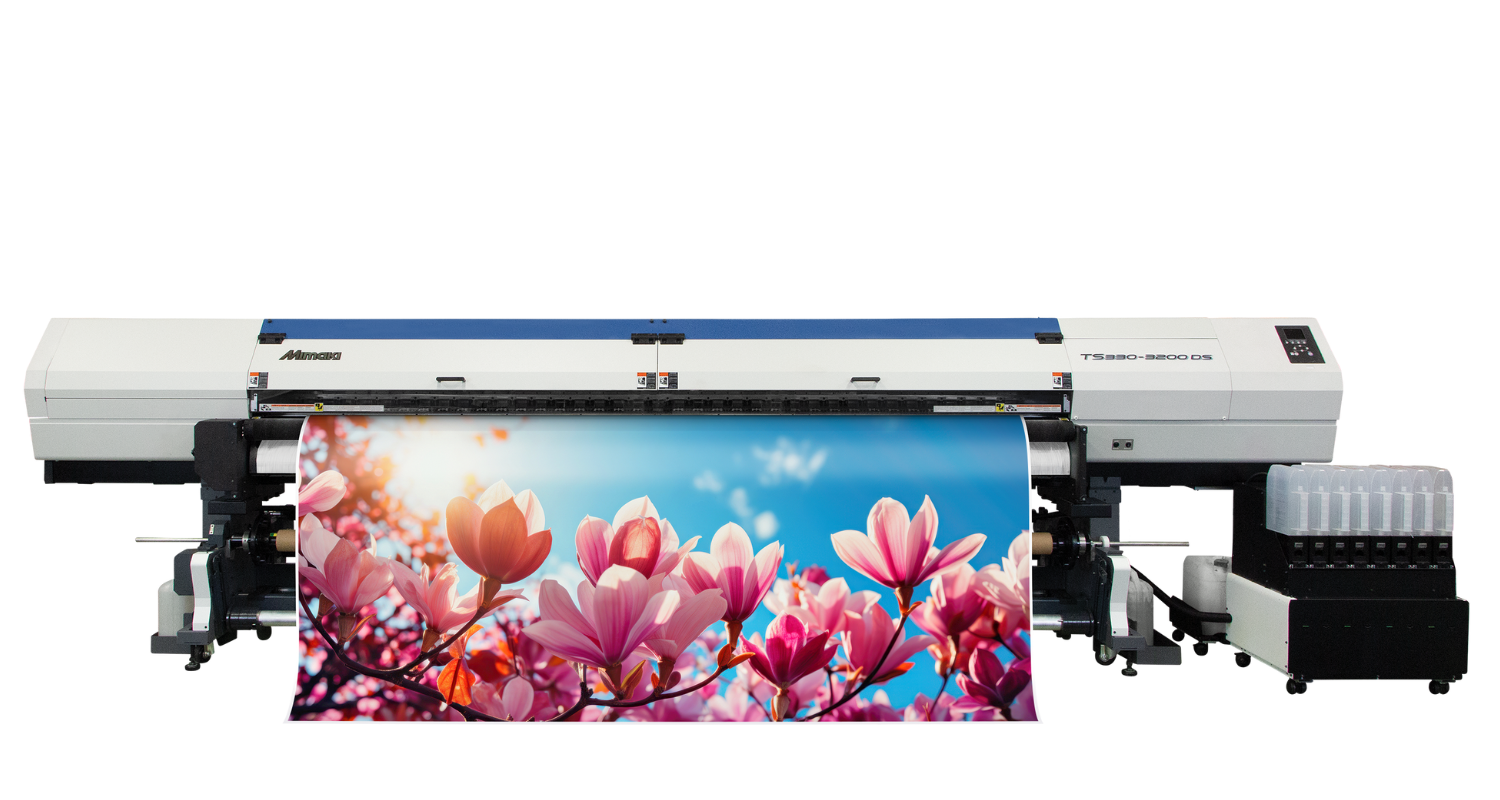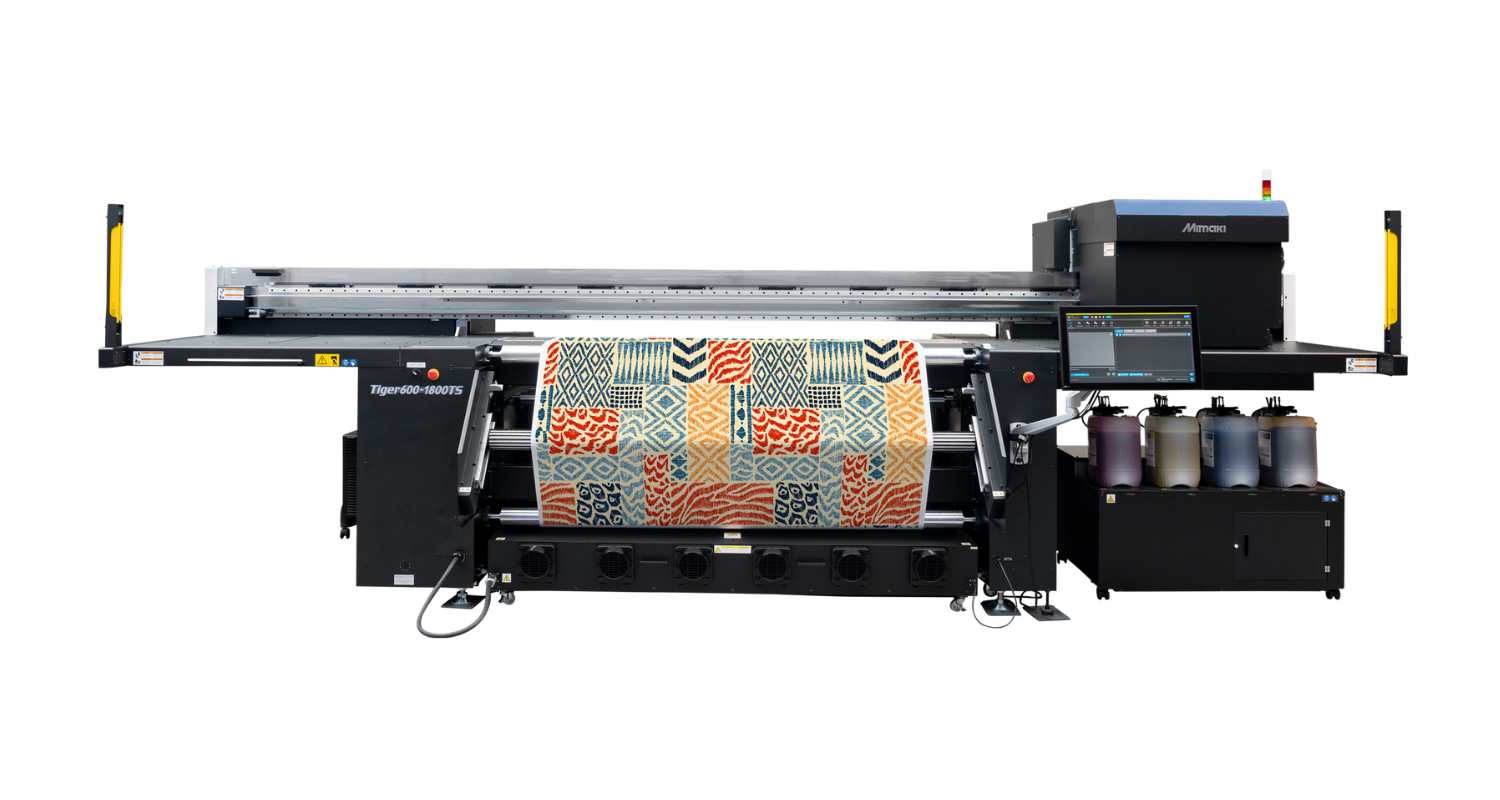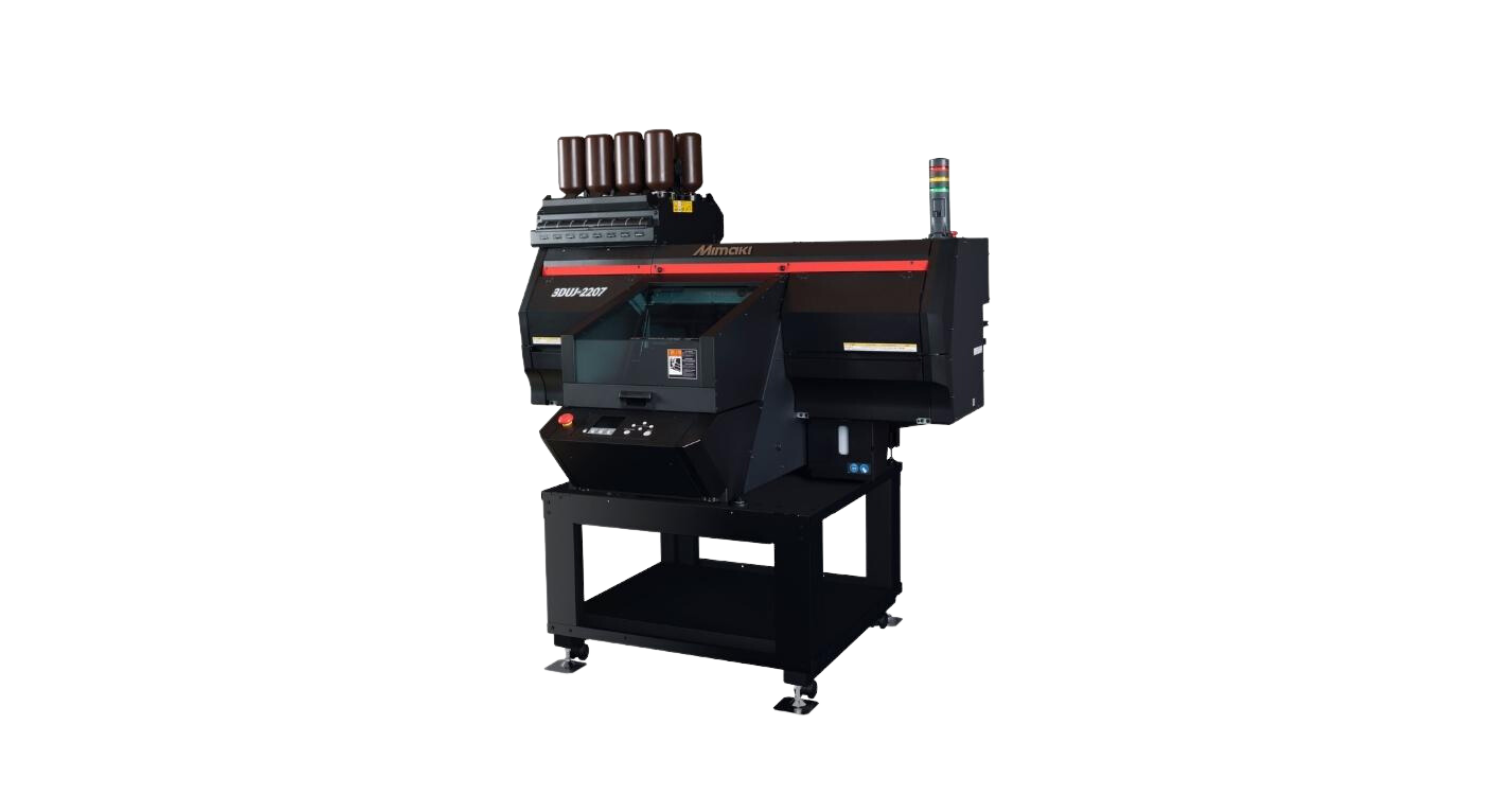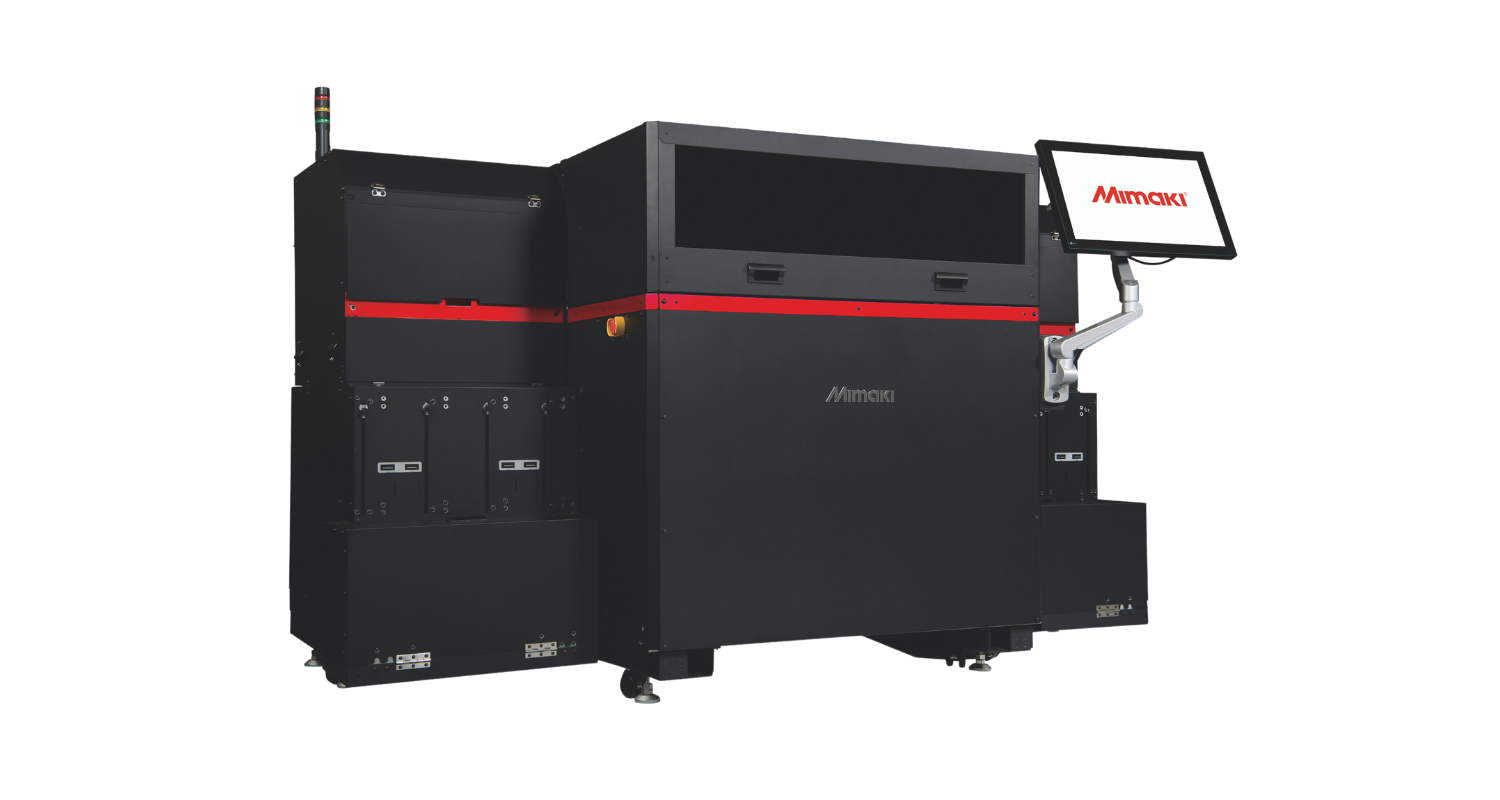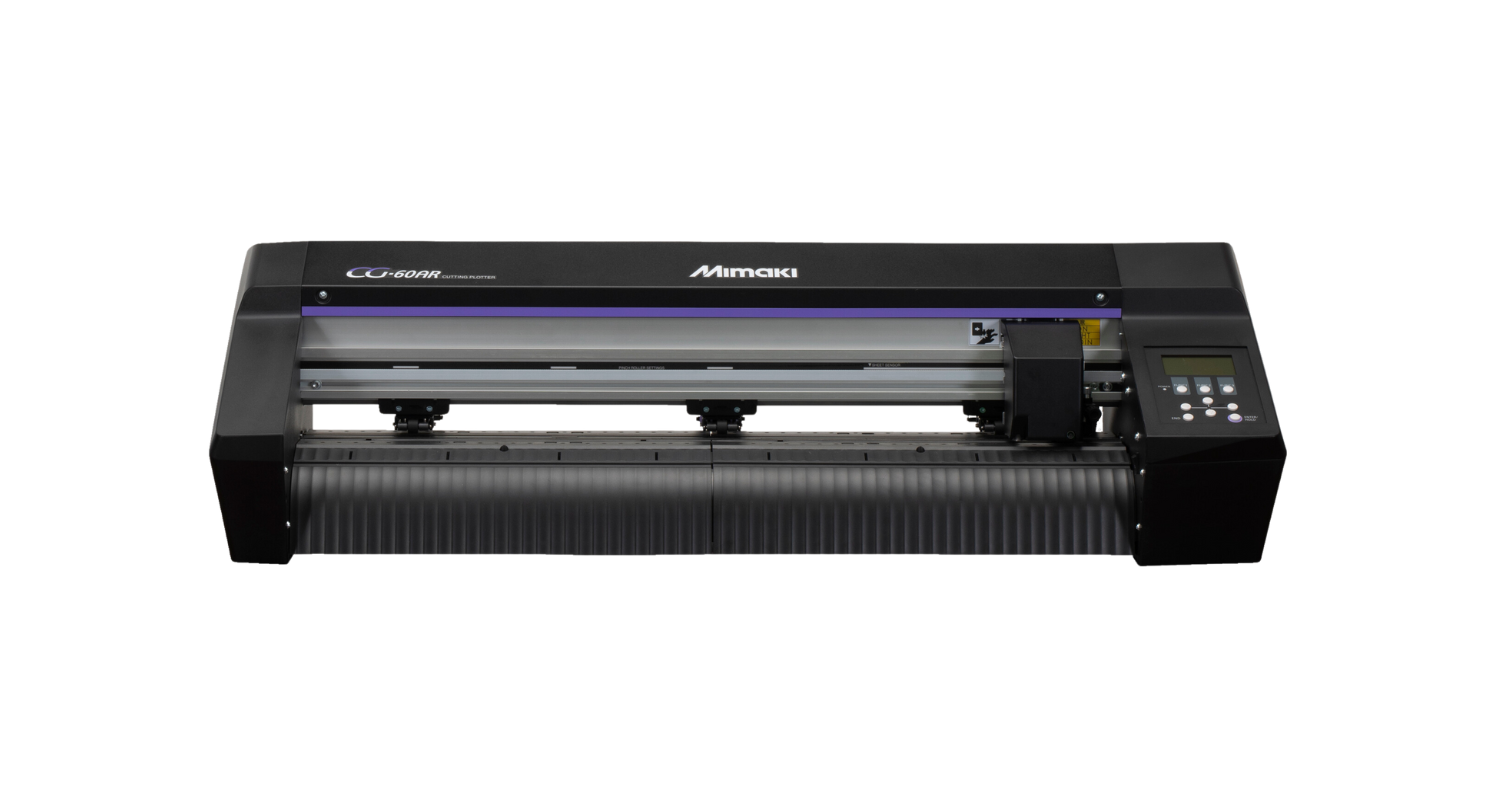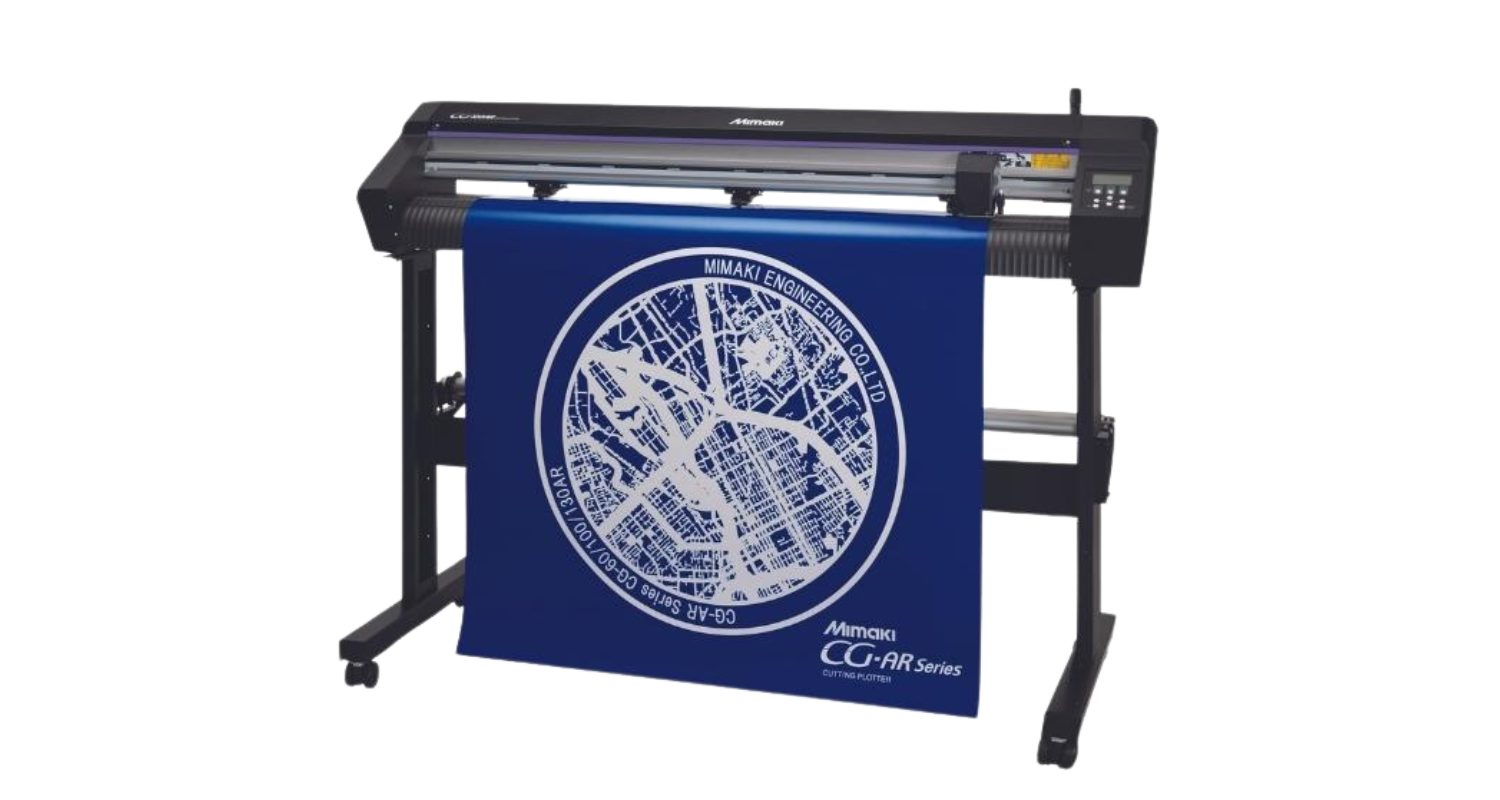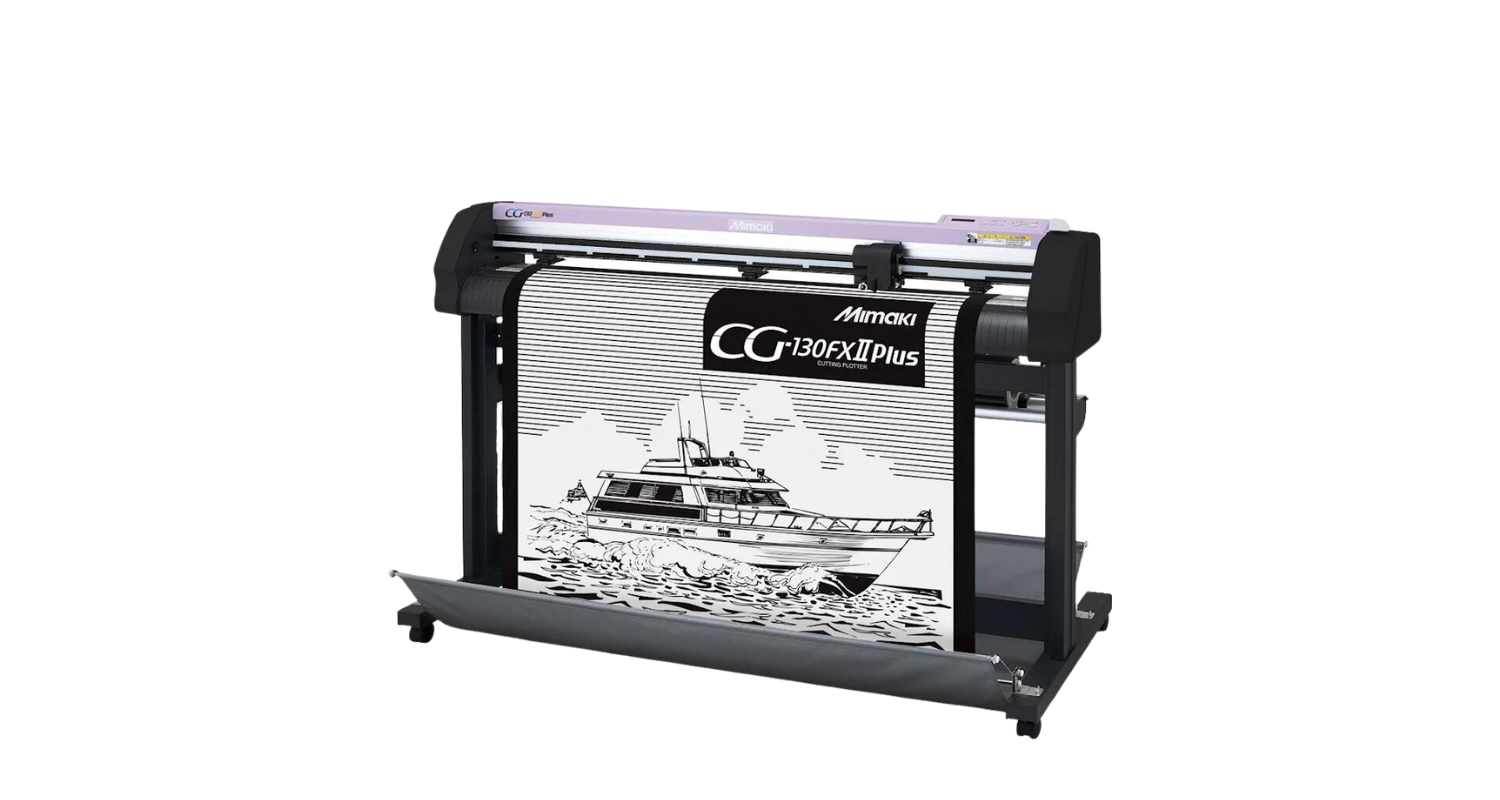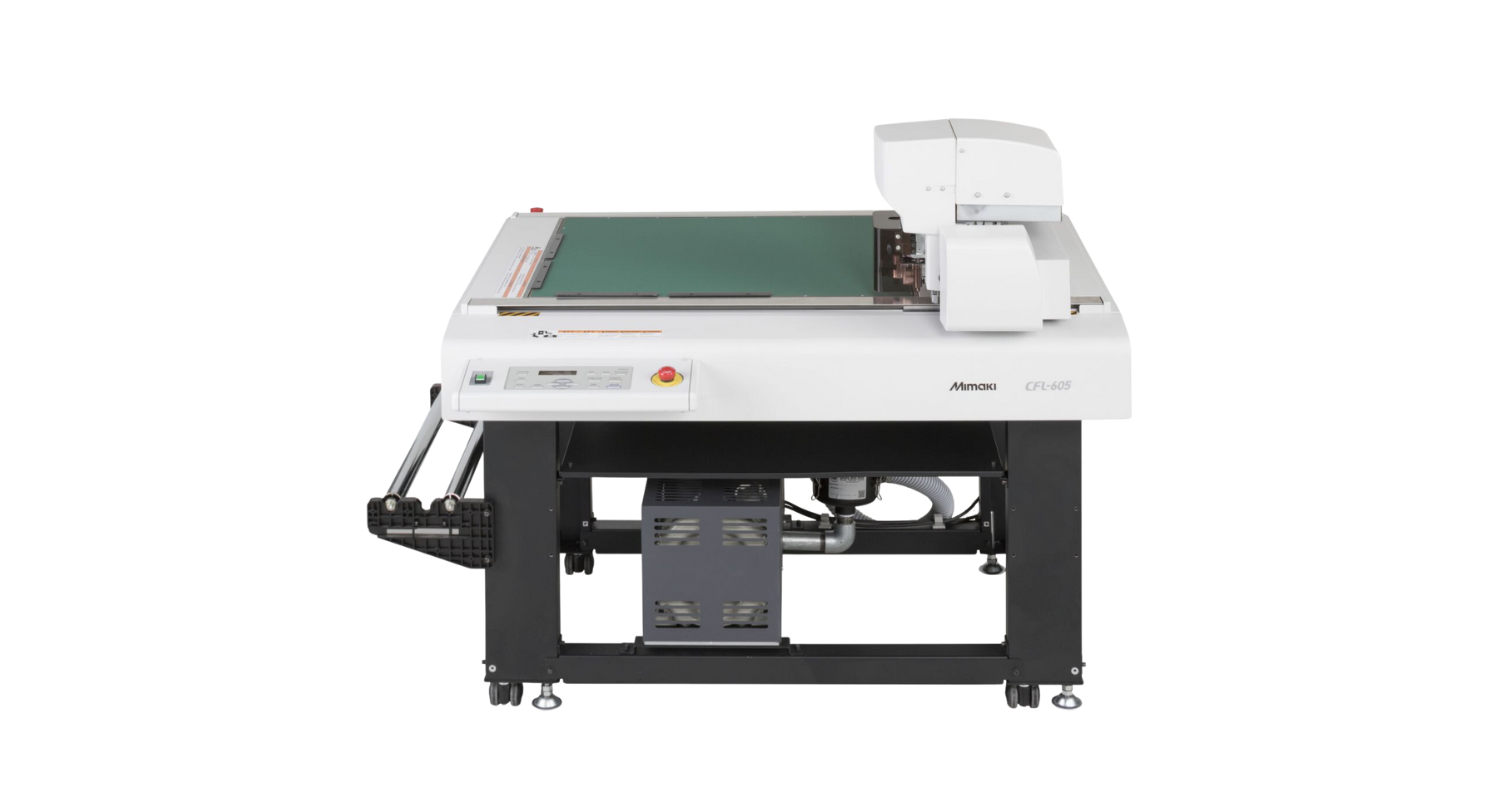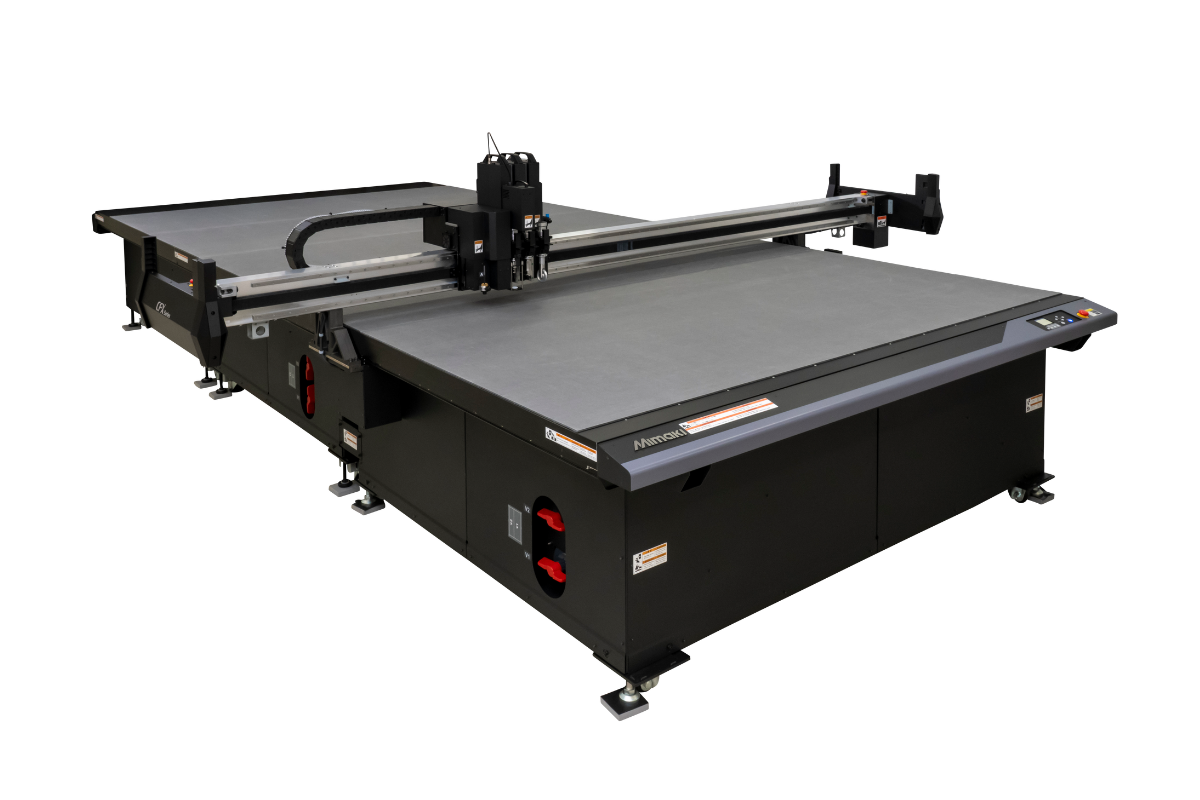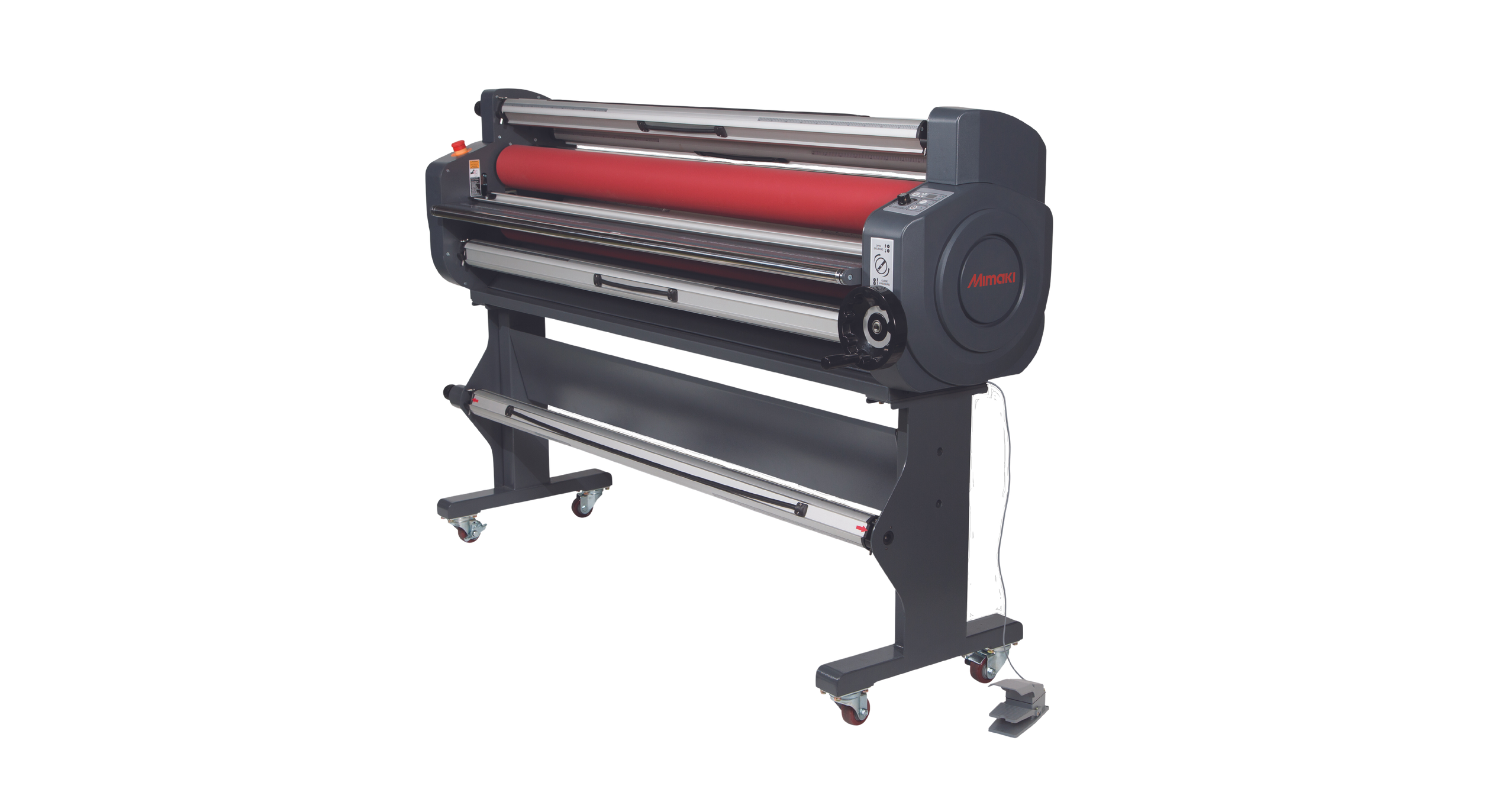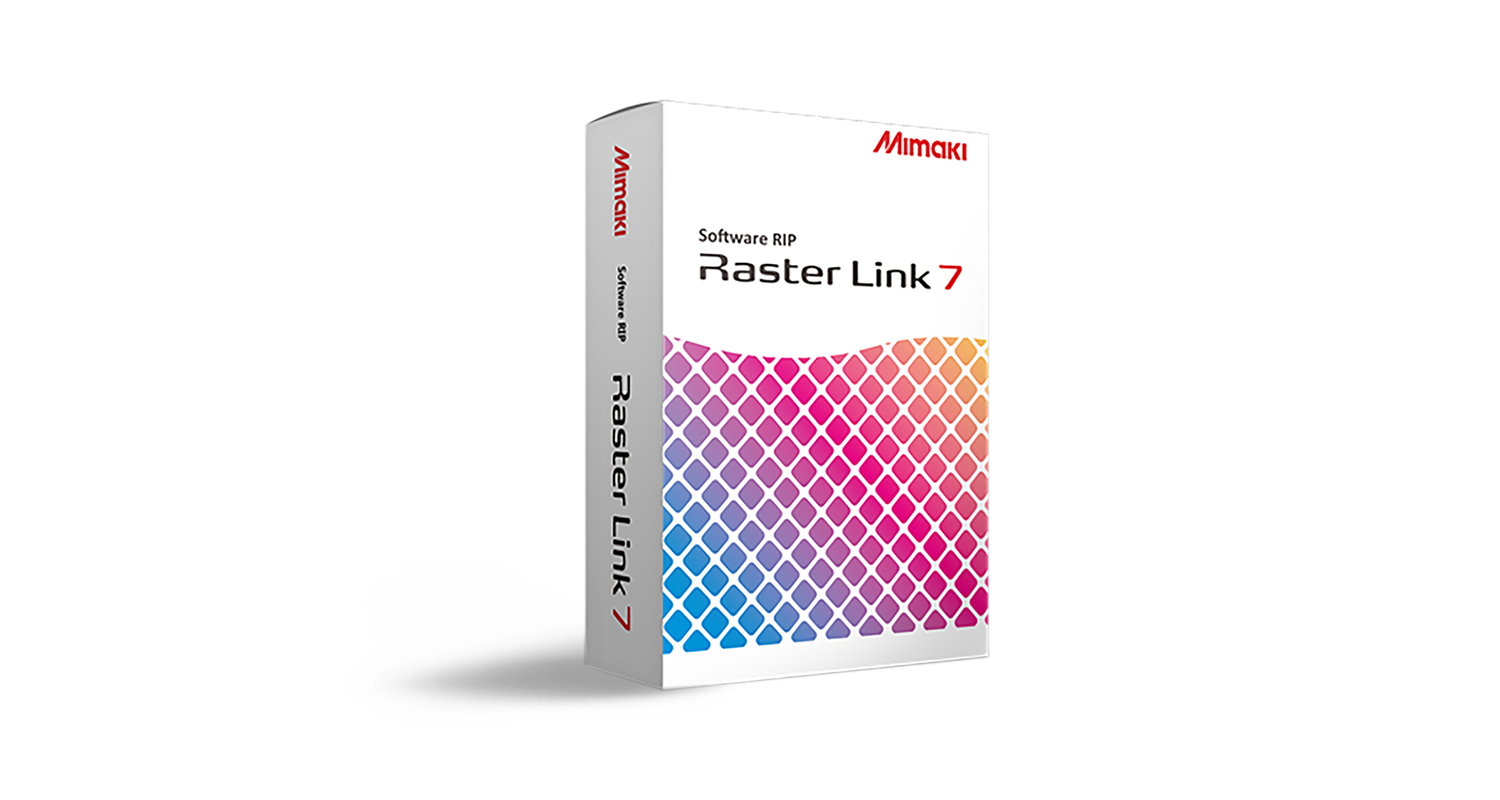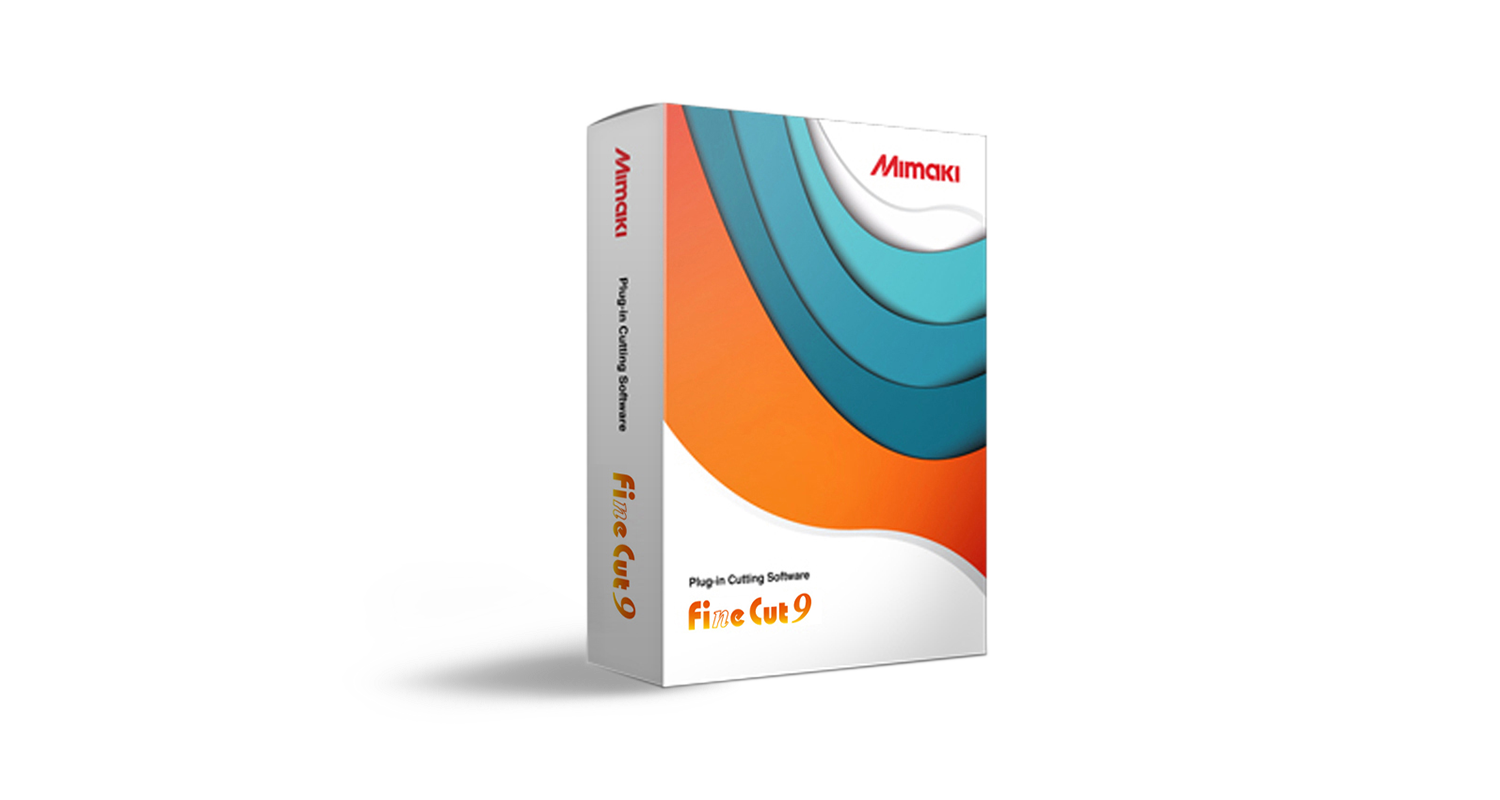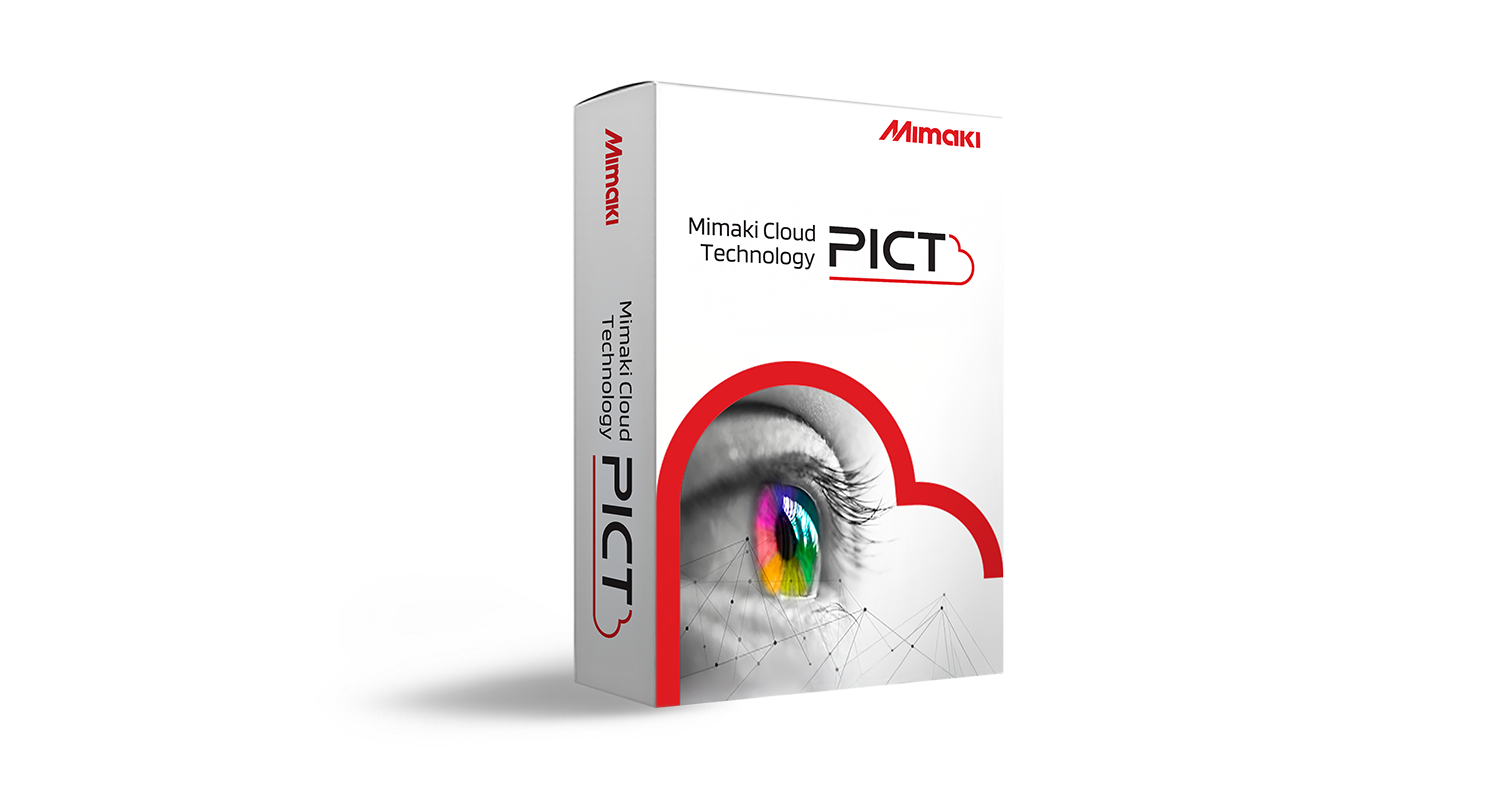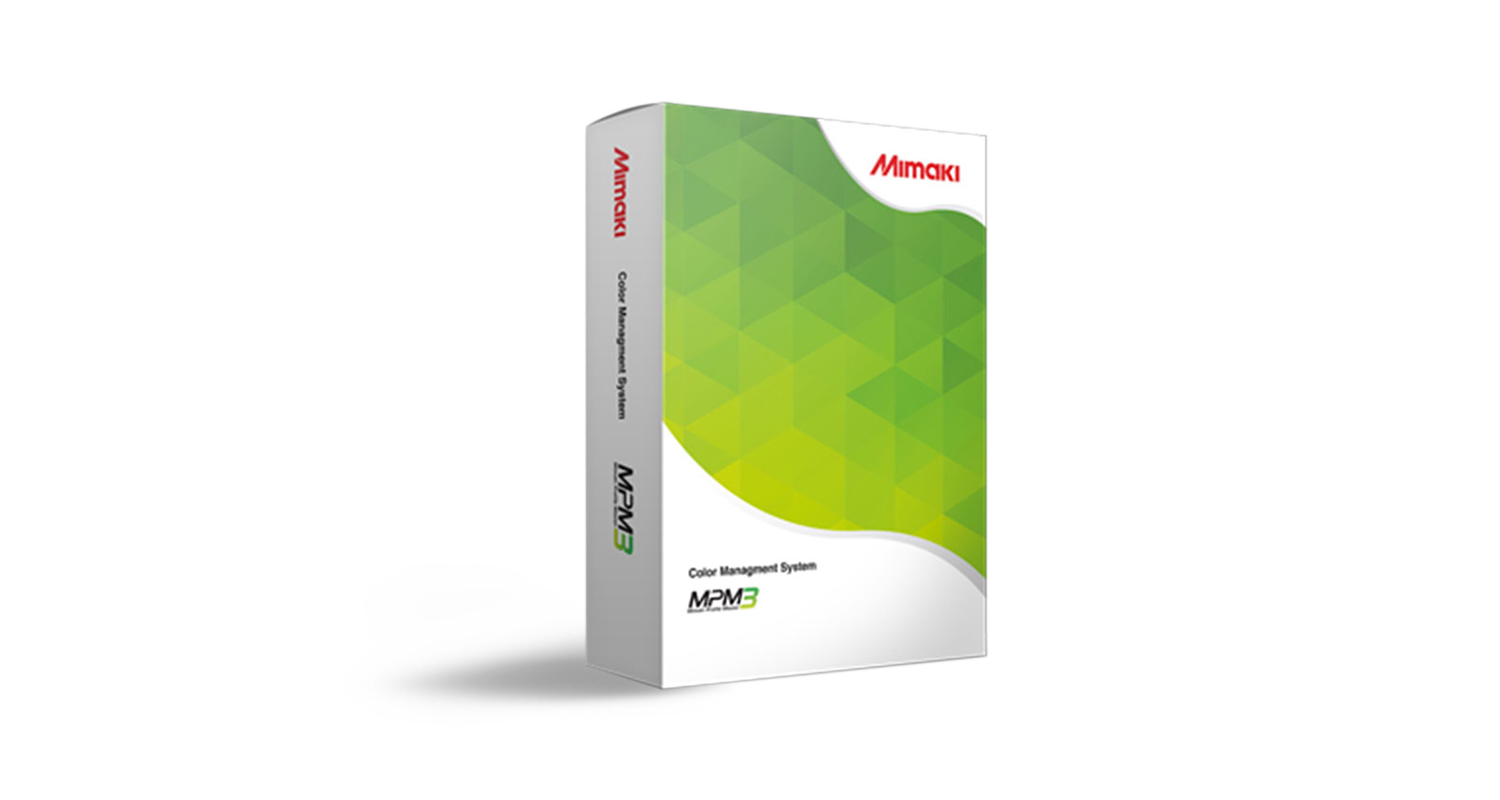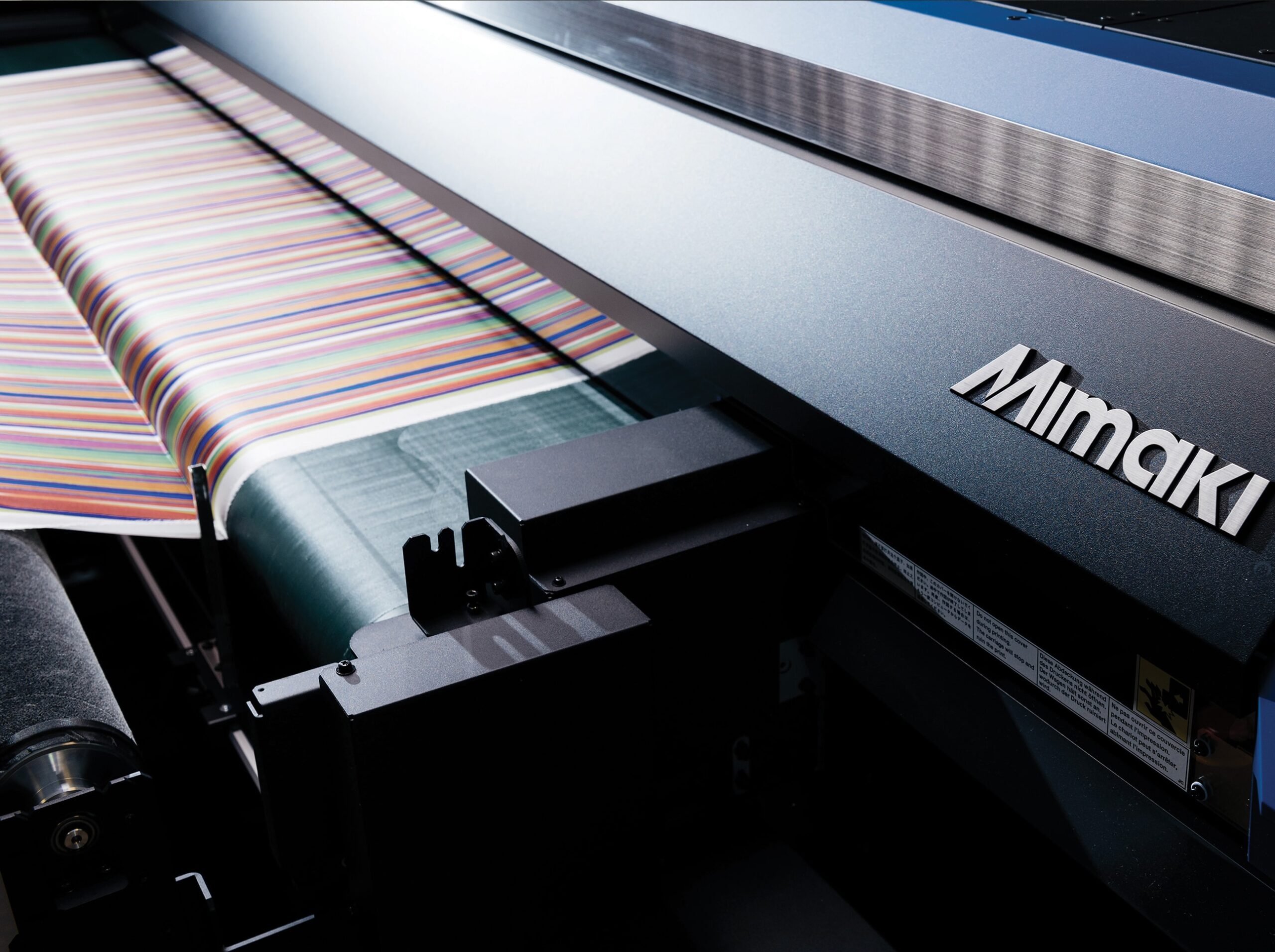Get The Look: Moving into digital textile printing for fashion
Mimaki’s strong heritage in textile and dye sublimation printing technology places it at the forefront of the market for fashion applications, with opportunities for entry-level right the way through to large-volume production. Key influencing factors in the industry at present include the new ink technology that has brought ink costs for fashion production down, making it more cost-effective to produce on home soil, something which is revitalising the British fashion industry.
For fast-fashion polyester garments, the Mimaki TS30-1300 delivers in spades. Mimaki’s new-kid-on-the-block, the TS30 1.3m dye sublimation printer was released in 2017 for print providers looking for an entry-level and easy to use option that gives them the tools to roll out short runs of finished garments or samples. Printing with dye sublimation inks onto transfer paper, the TS30 is highly productive for apparel creation and at just under £7,500 it makes it very accessible for those entering the market for the first time or for producing samples direct to the final fabric.
Two of Mimaki’s most popular printers; the JV150 and JV300 series printers are very well placed to serve the fashion industry when used with Mimaki’s dye-sublimation inks. Ideal as a production option where longer runs and higher demand are of importance, the JV series dye sub printers provide stunning prints and vibrant colours for creating beautiful fashion. Available up to 1.6m wide, these production machines harness all of Mimaki’s textile printing prowess, with long-lasting, vibrant inks, high print speed and ease of use.
For PSPs looking to produce fashion garments with natural fabrics, such as cotton, or indeed the flexibility to print to both natural and man-made materials, the direct to textile Tx300P is the quintessential choice. Producing cotton fashion garments requires the use of reactive inks and delivers a soft handle garment, with bright colours and good wash fastness. High print speeds and print quality are a given, as with any of Mimaki’s portfolio, but other benefits include an advanced textile feeding mechanism for optimum fabric tension, Nozzle Check Unit (NCU) for reliable continuous print operation and a cockling reduction transfer mechanism for higher quality print.
The majority of these Mimaki printers are available with a bulk ink system making it far more cost-effective than ever to both sample and produce fashion in the UK and reduce the lead times of buying abroad. By bringing wide format printing for fashion in-house PSPs reduce turnaround time and minimise their inventory by having a digital textile workflow, all of which is boosting the UK fashion industry.


